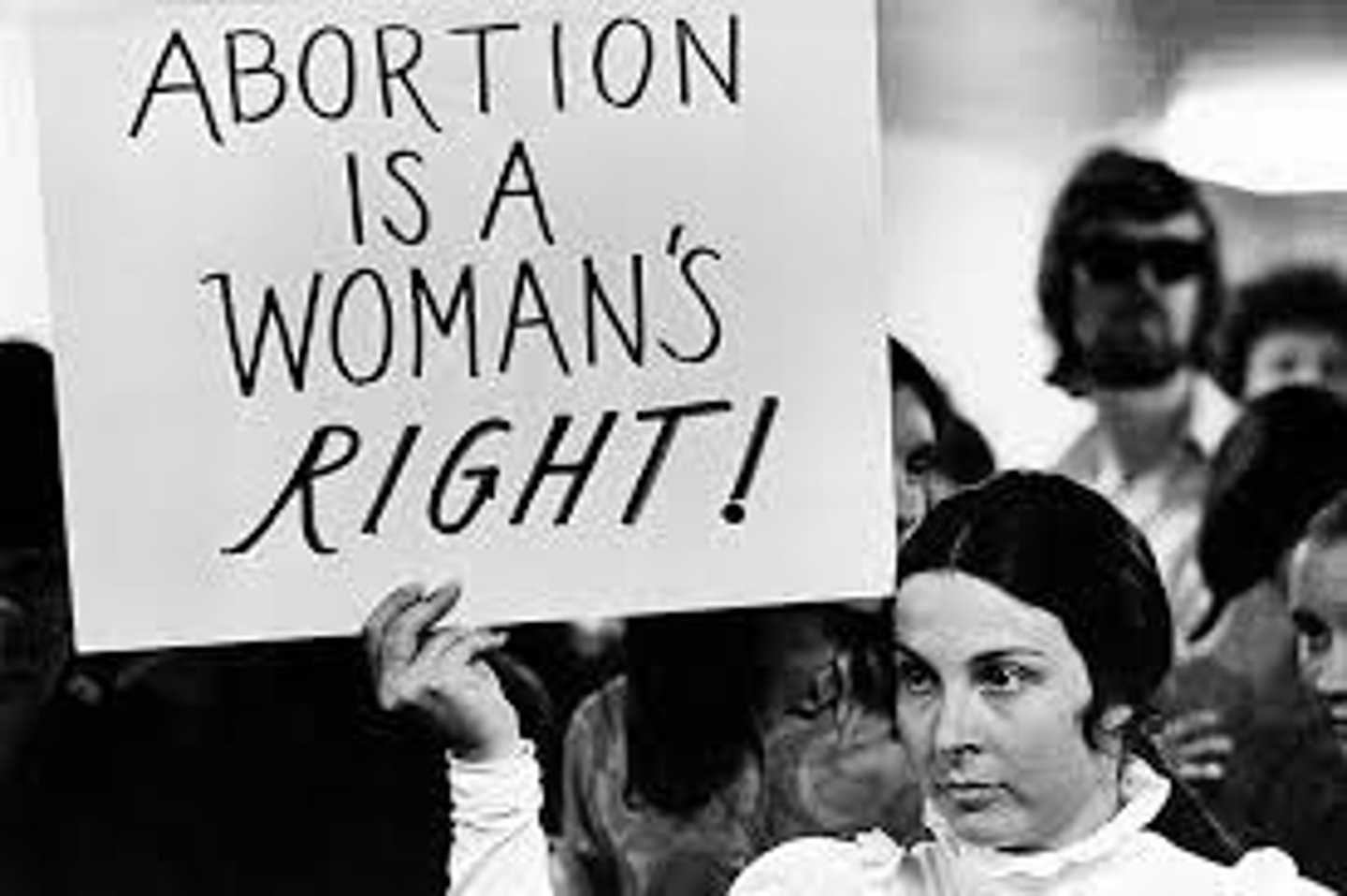APUSH Give Me Liberty - Ch 25
1/32
There's no tags or description
Looks like no tags are added yet.
Name | Mastery | Learn | Test | Matching | Spaced |
|---|
No study sessions yet.
33 Terms
SNCC (Student Nonviolent Coordinating Committee)
group formed by student activists; used the sit-in as an effective method of protest
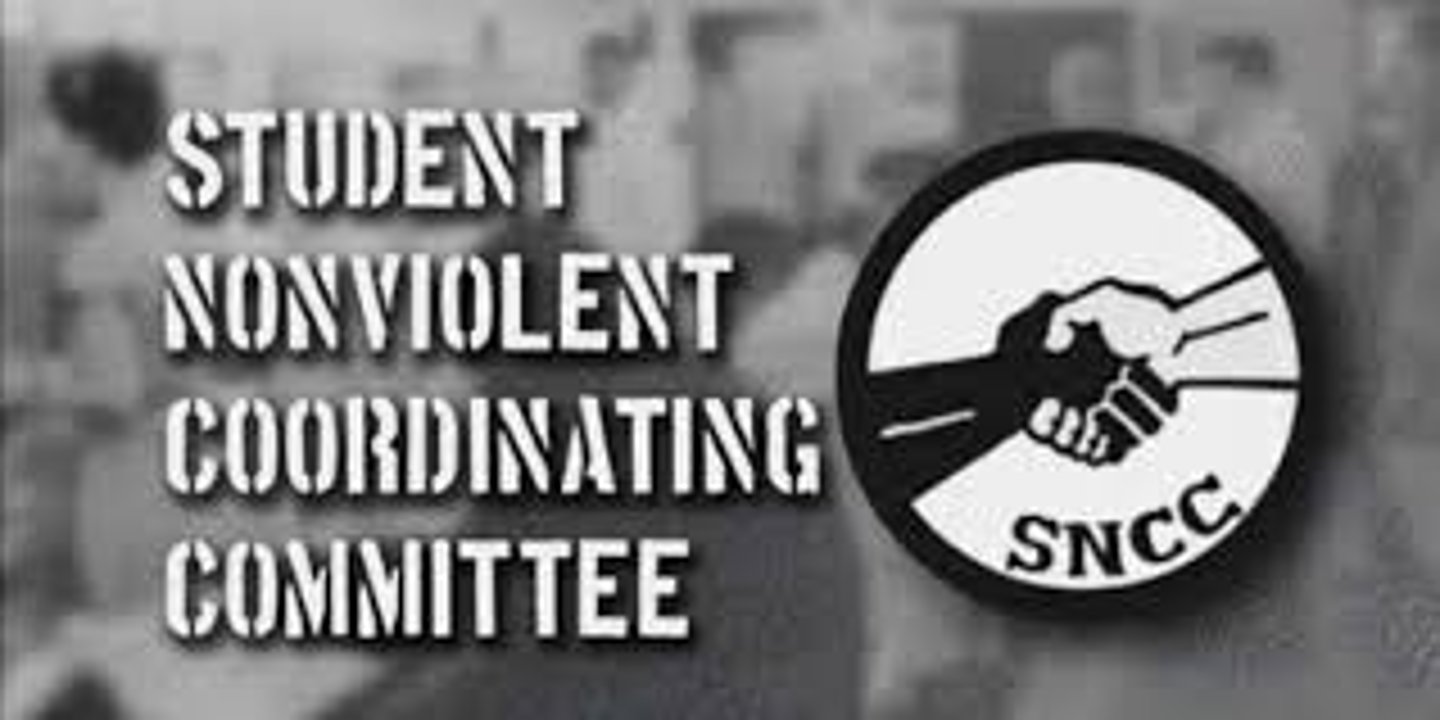
• Freedom Rides
Civil rights activists who rode interstate buses into the segregated southern United States in 1961 and subsequent years in order to challenge the non-enforcement of the United States Supreme Court decisions which ruled that segregated public buses were unconstitutional.
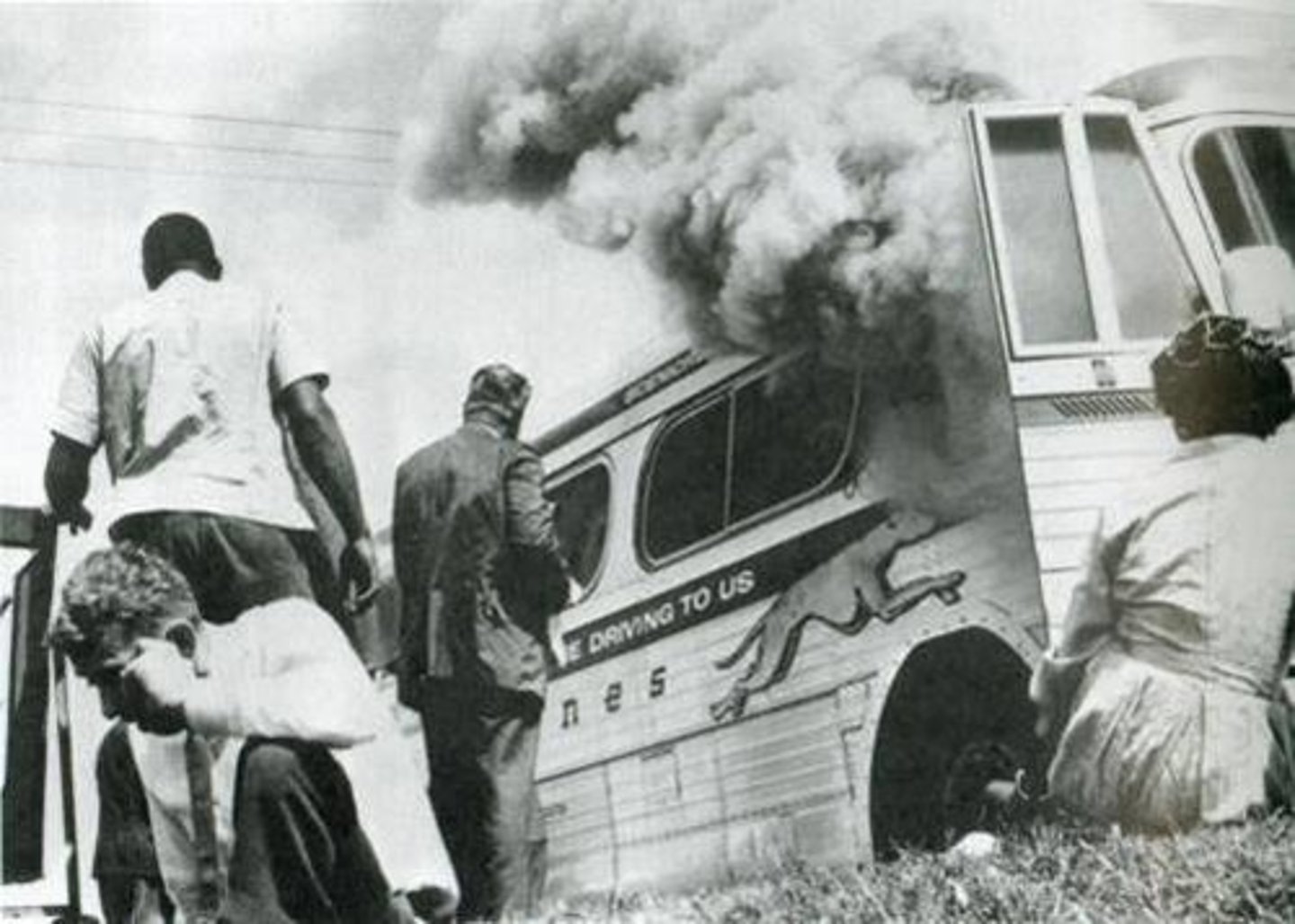
• James Meredith
American civil rights activist who gained national renown at a key juncture in the civil rights movement in 1962, when he became the first African American student at the University of Mississippi.
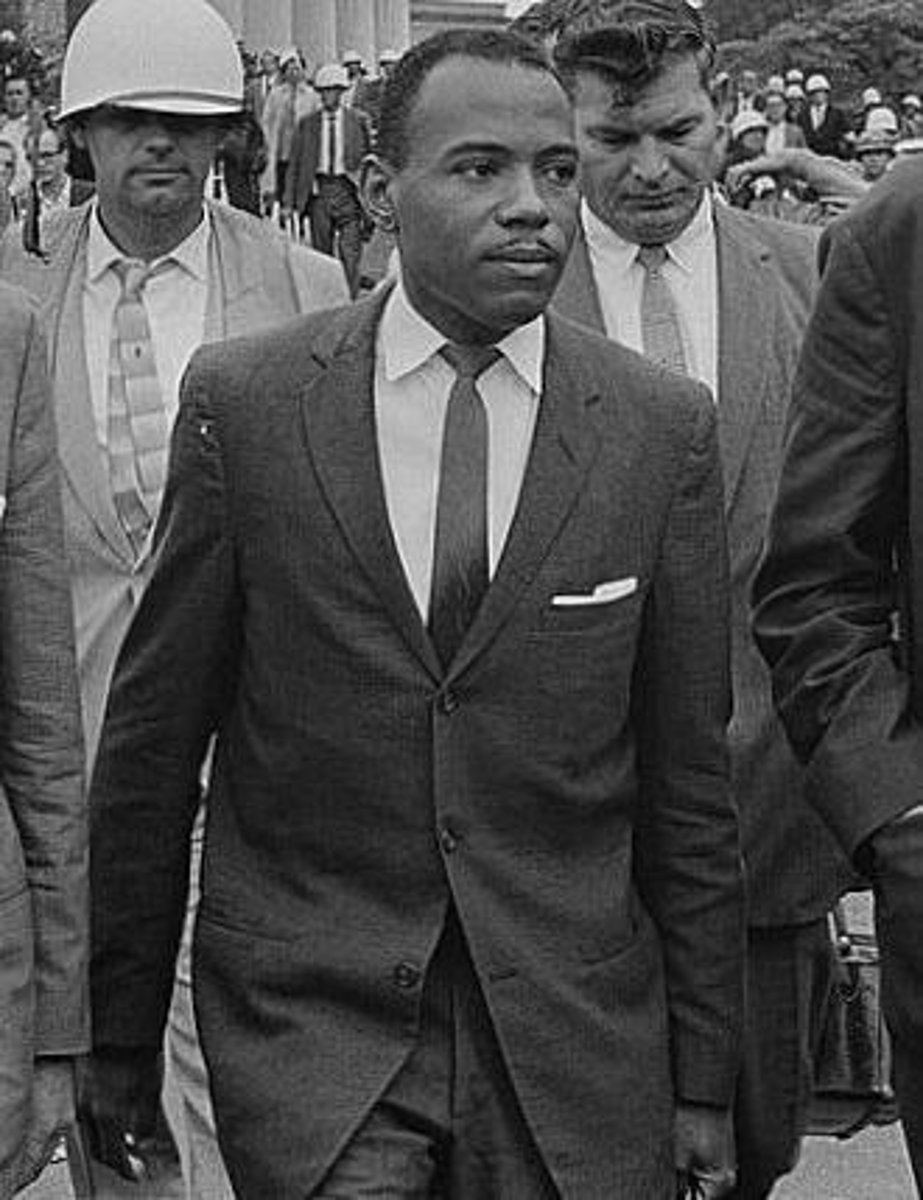
• "Letter from Birmingham Jail"
Letter that Martin Luther King, Jr., addressed to his fellow clergymen while he was in jail in Birmingham, Alabama, in 1963, after a nonviolent protest against racial segregation, defends the strategy of nonviolent resistance to racism.
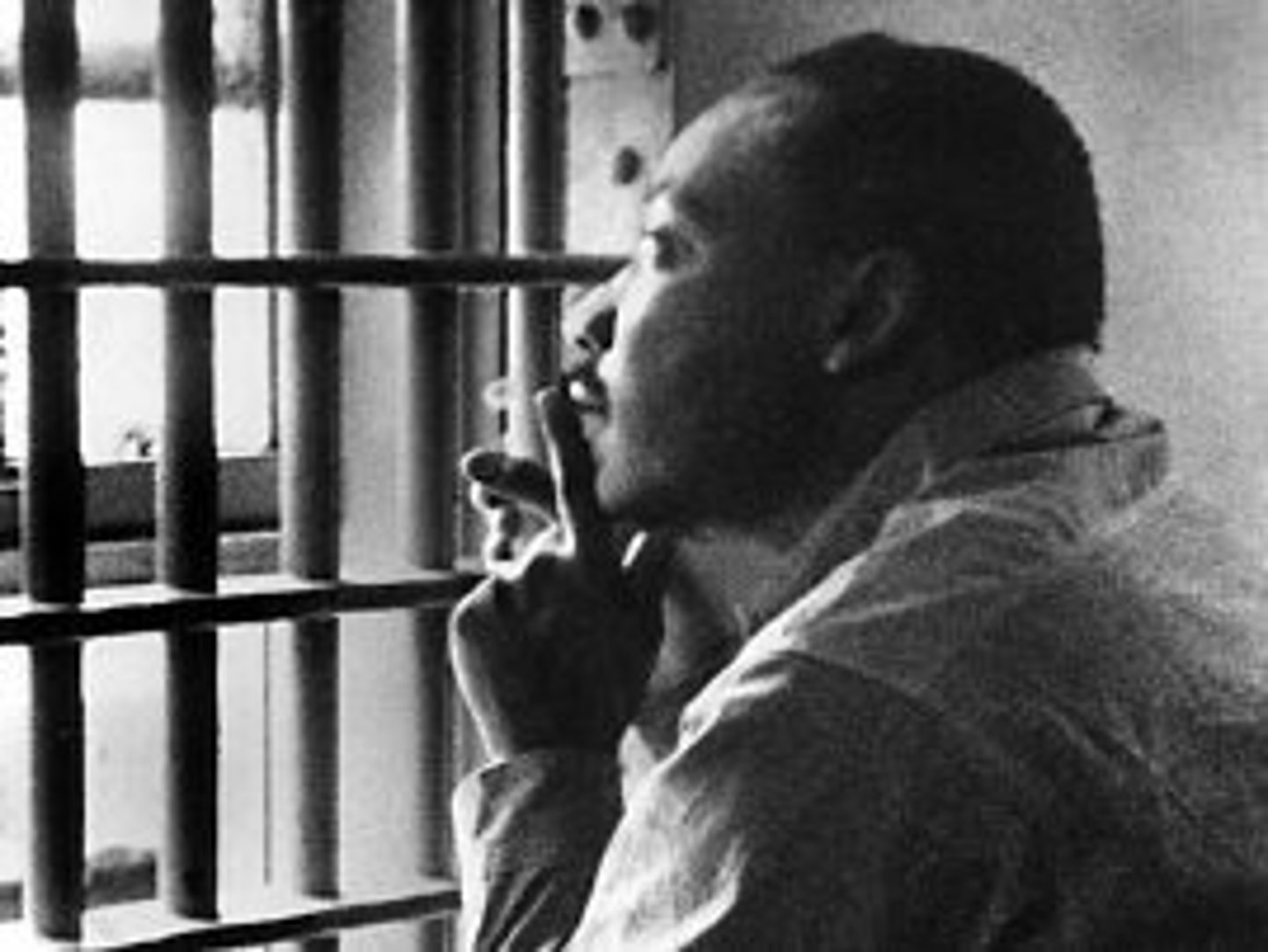
• March on Washington
In August 1963, civil rights leaders organized a massive rally in Washington to urge passage of President Kennedy's civil rights bill. The high point came when MLK Jr., gave his "I Have a Dream" speech to more than 200,000 marchers in front of the Lincoln Memorial.
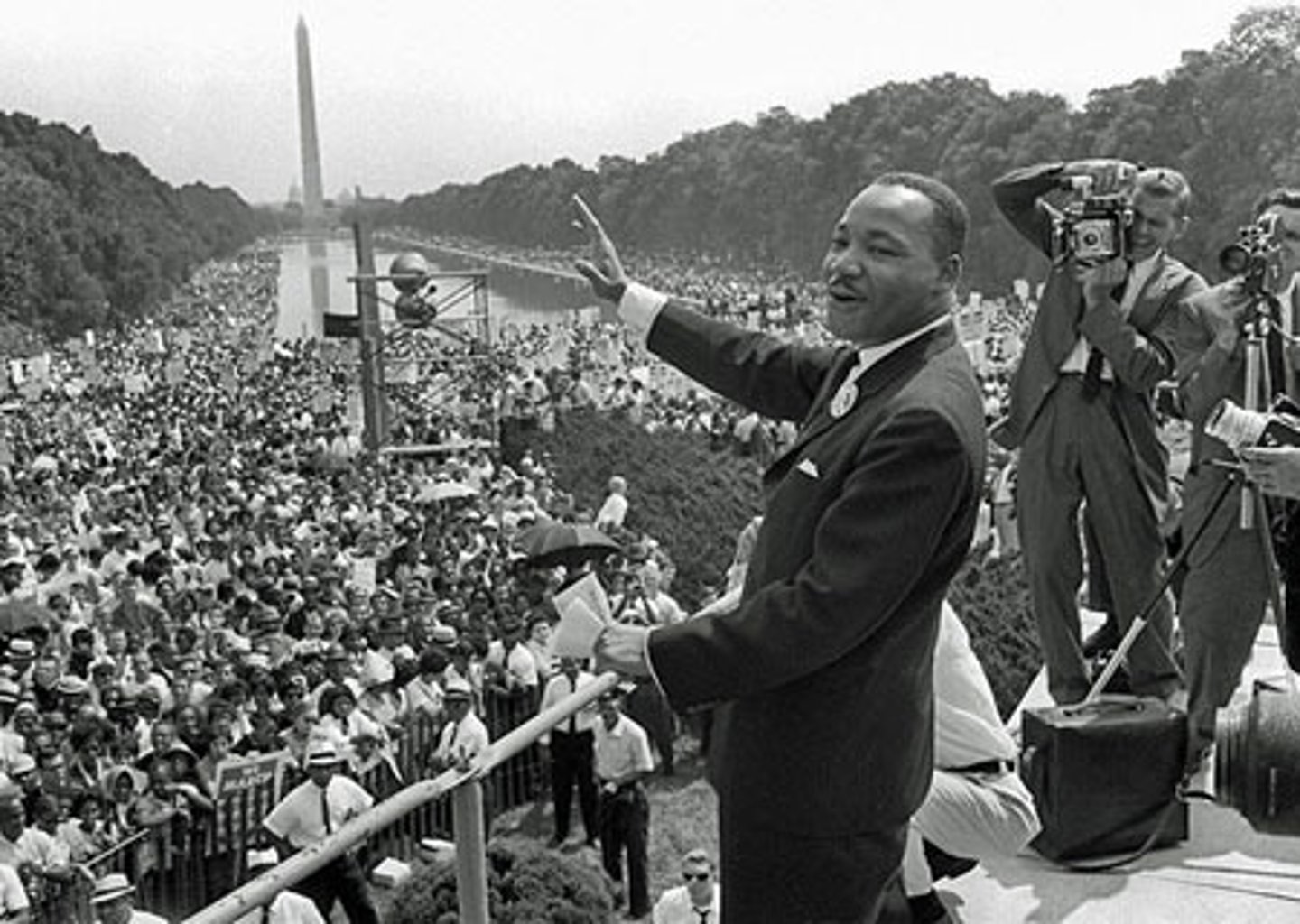
• Peace Corps
Start by president JFK, he signed a congressional legislation creating a permanent Peace Corps that would "promote world peace and friendship" through three goals, it is a volunteer program run by the government.
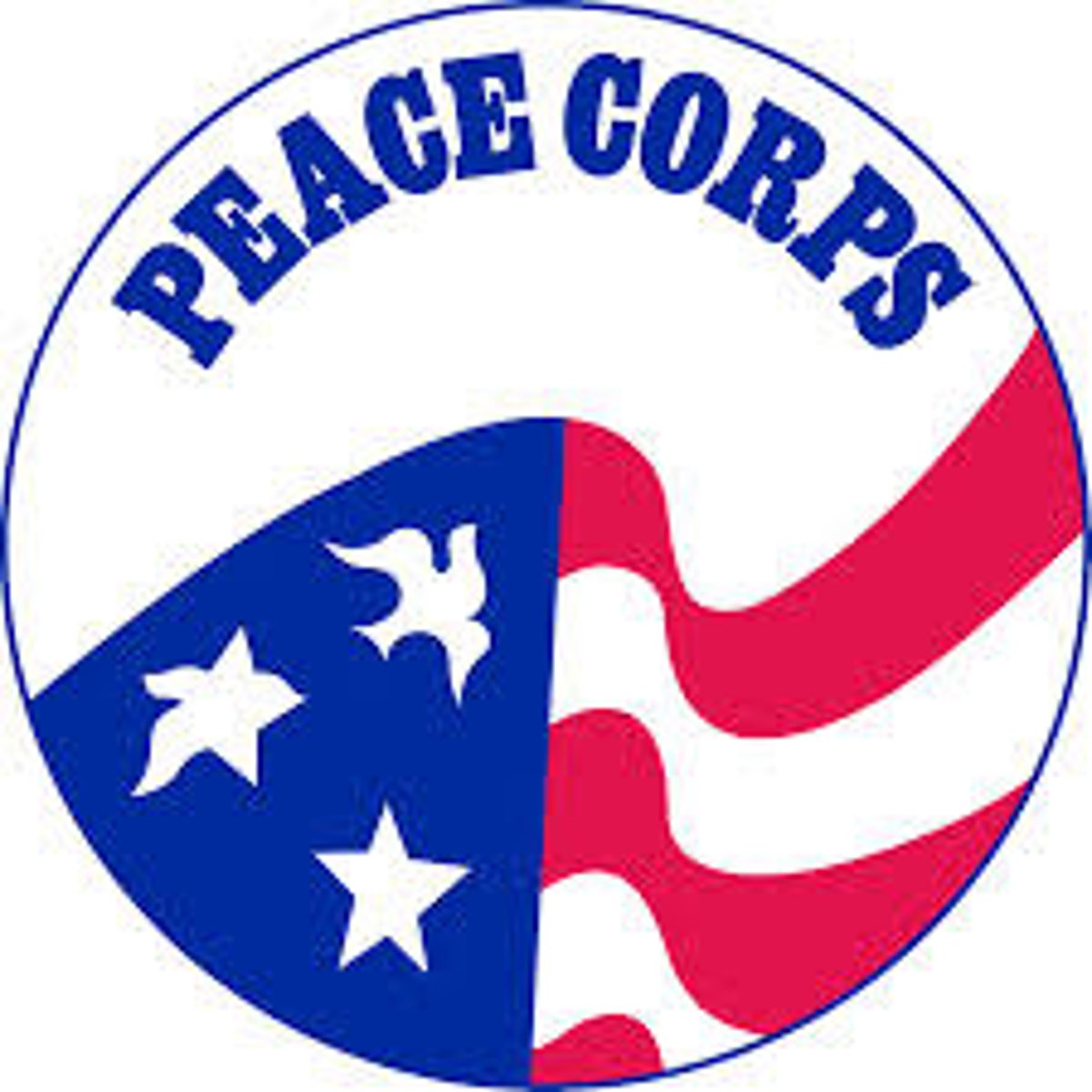
• Bay of Pigs
An unsuccessful invasion of Cuba in 1961, which was sponsored by the United States. Its purpose was to overthrow Cuban dictator Fidel Castro.
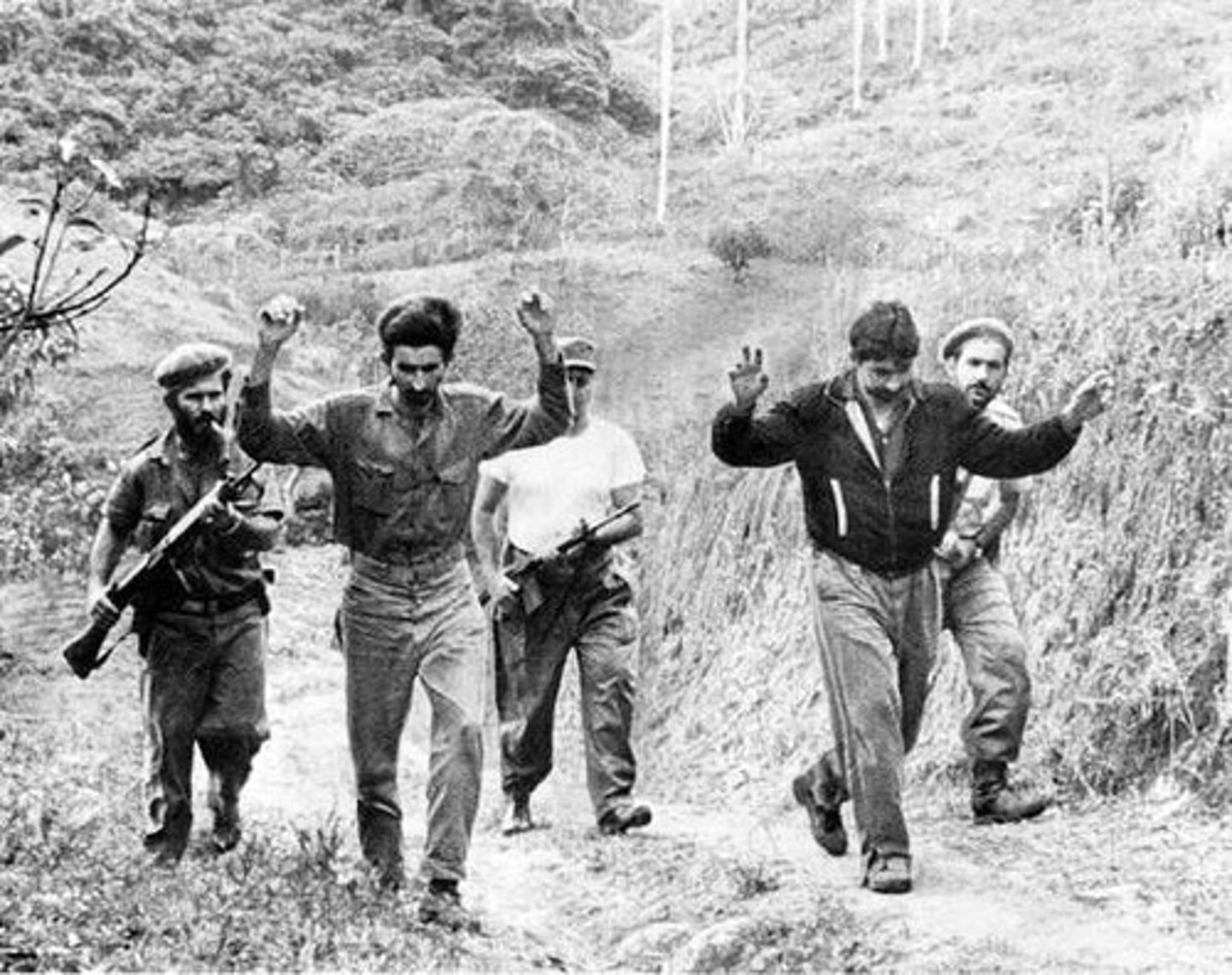
• Cuban Missile Crisis
A confrontation between the United States and the Soviet Union in 1962 over the presence of missile sites in Cuba; one of the "hottest" periods of the cold war.
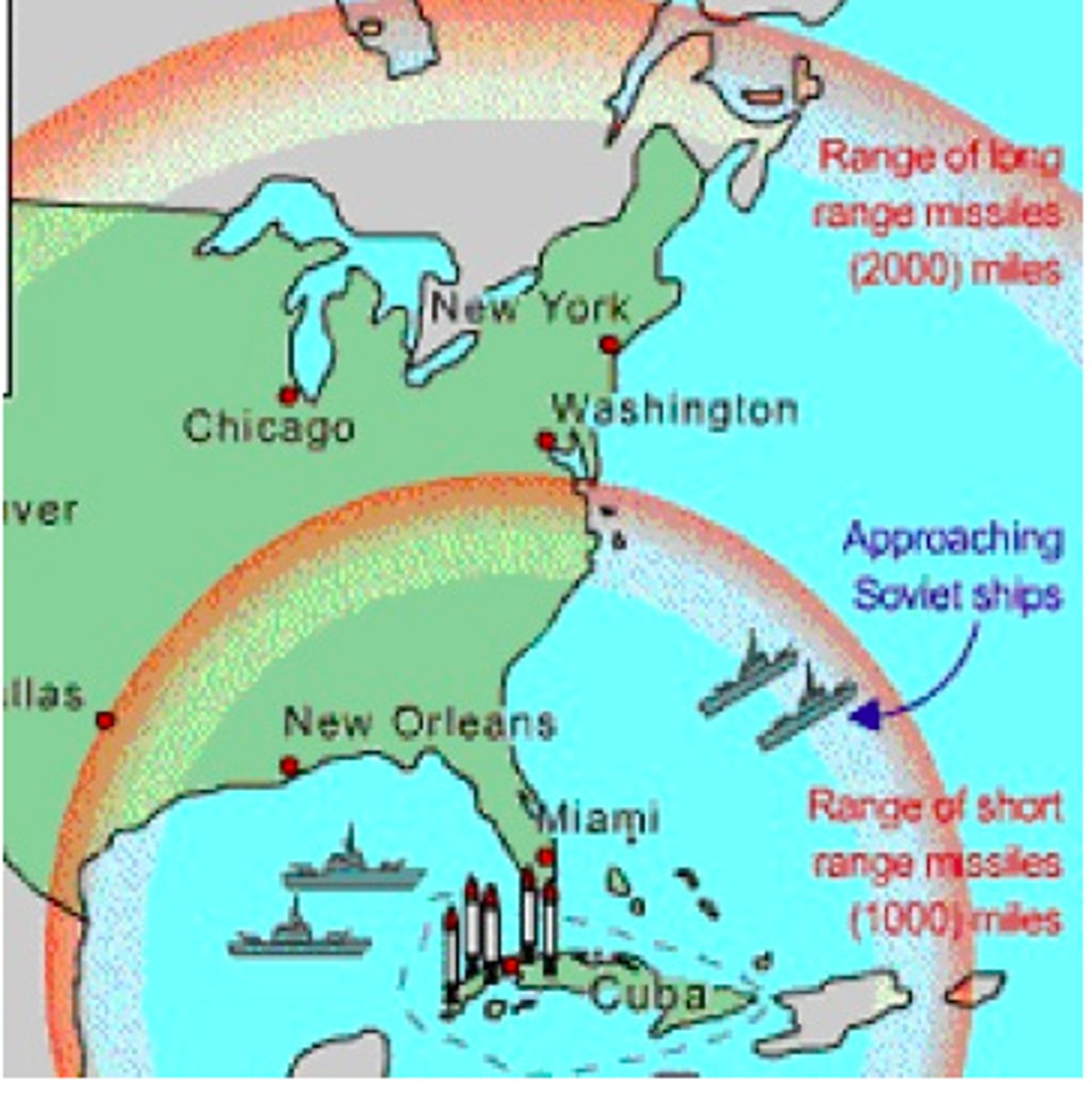
• Berlin Wall
A wall separating East and West Berlin built by East Germany in 1961 to keep citizens from escaping to the West
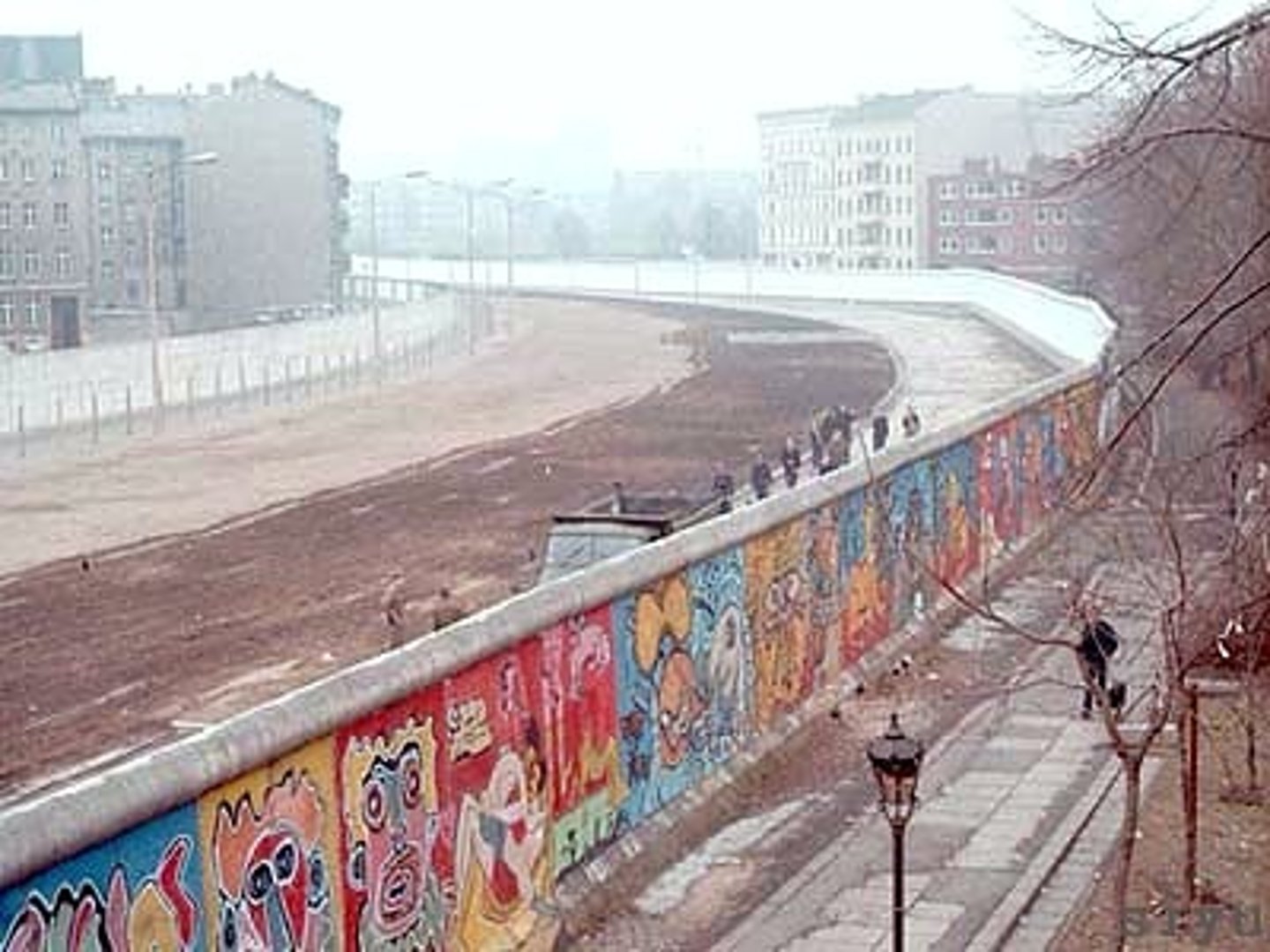
Freedom Summer (1964)
Effort by civil rights groups in Mississippi to register black voters during the summer of 1964
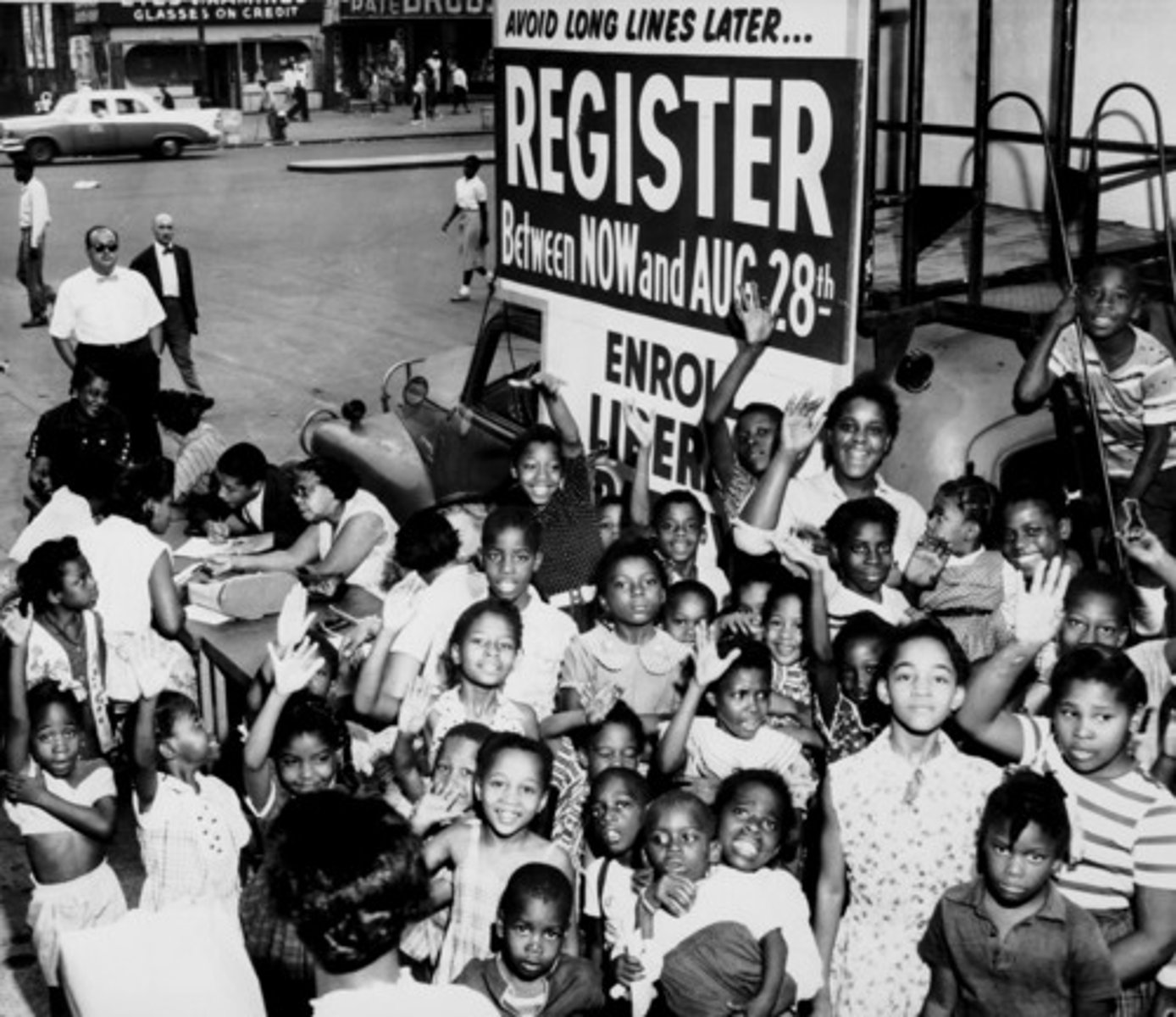
• Civil Rights Act 1964
outlawed discrimination based on race, color, religion, sex, or national origin
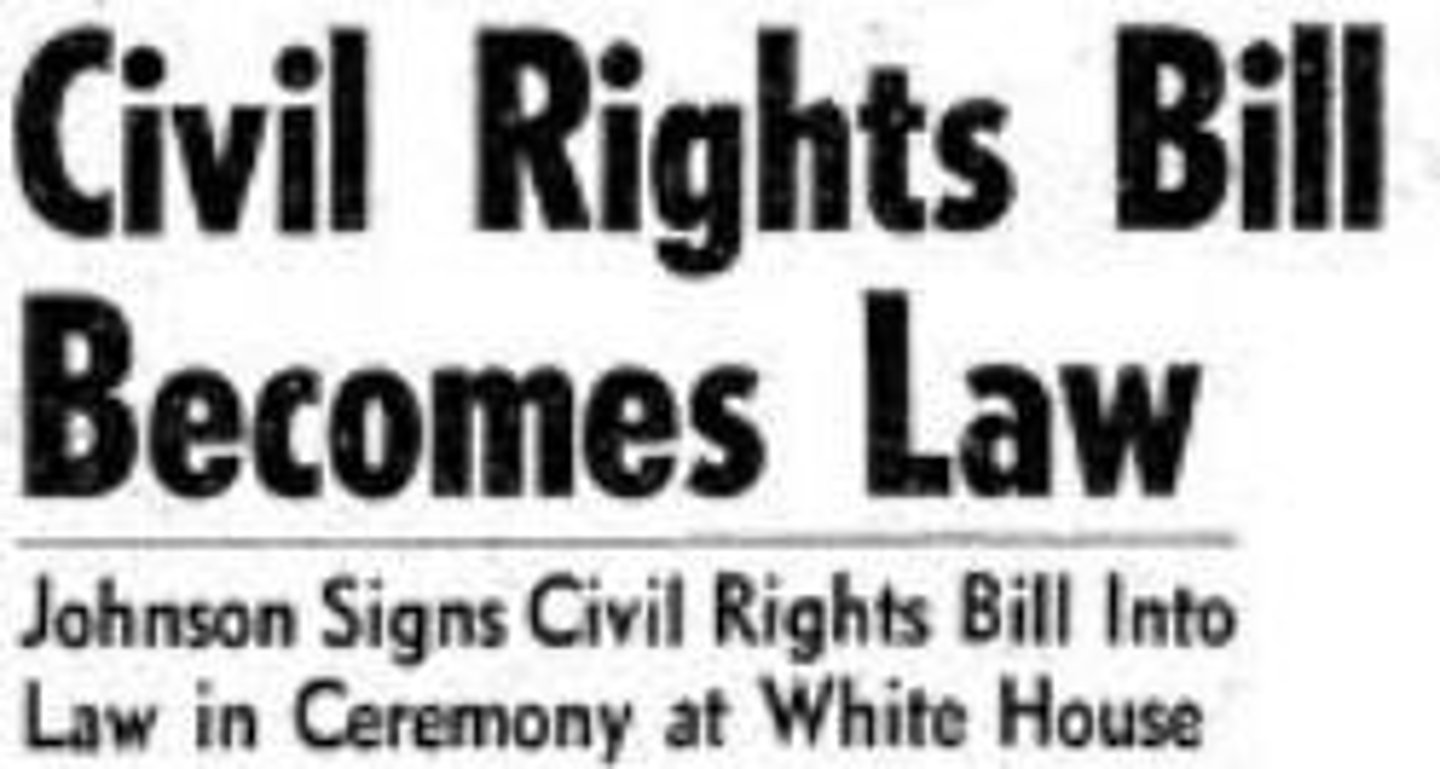
• Twenty-fourth Amendment
Prohibits both Congress and the states from conditioning the right to vote in federal elections on payment of a poll tax or other types of tax.
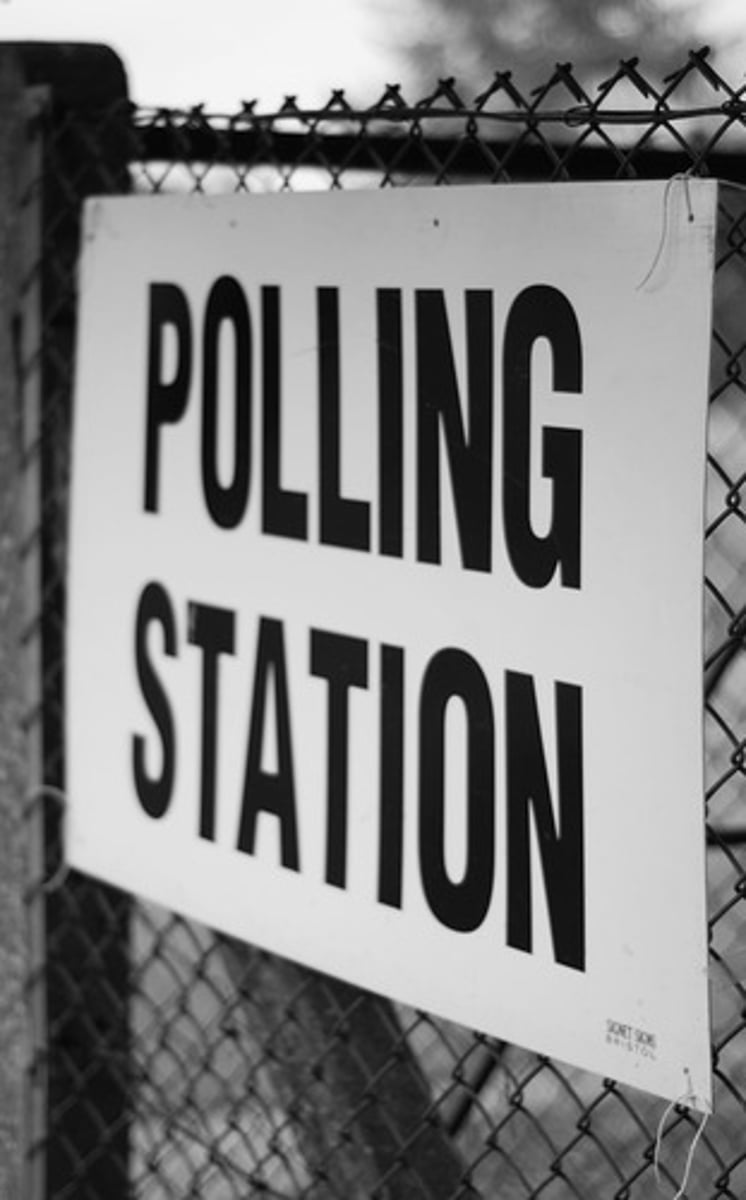
• Hart-Cellar Act
The Immigration and Nationality Services Act of 1965 abolished the national-origin quotas that had been in place in the United States since the Immigration Act of 1924. Created "illegal aliens" status.
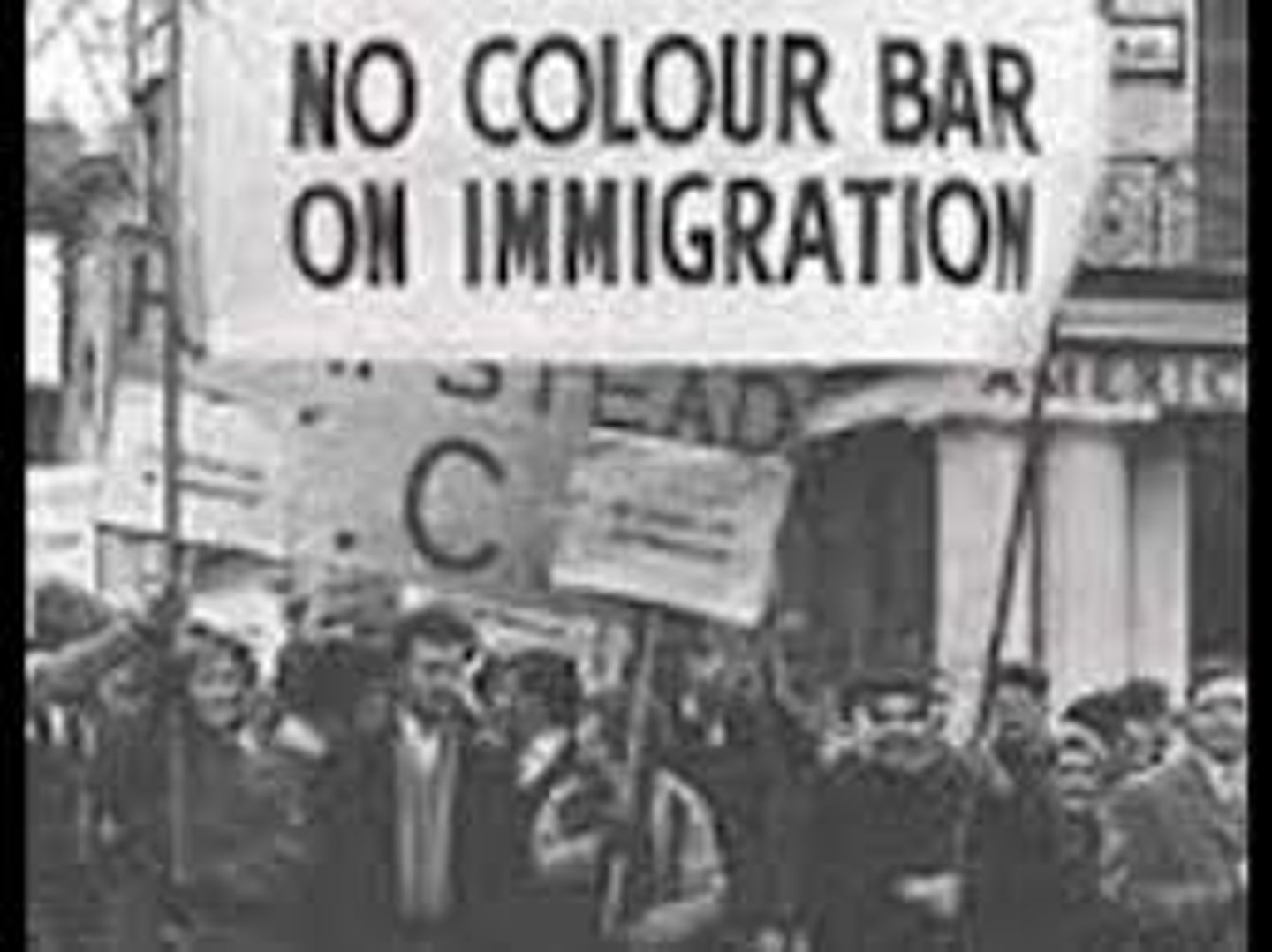
• Great Society
A domestic program in the administration of President Lyndon B. Johnson that instituted federally sponsored social welfare programs.
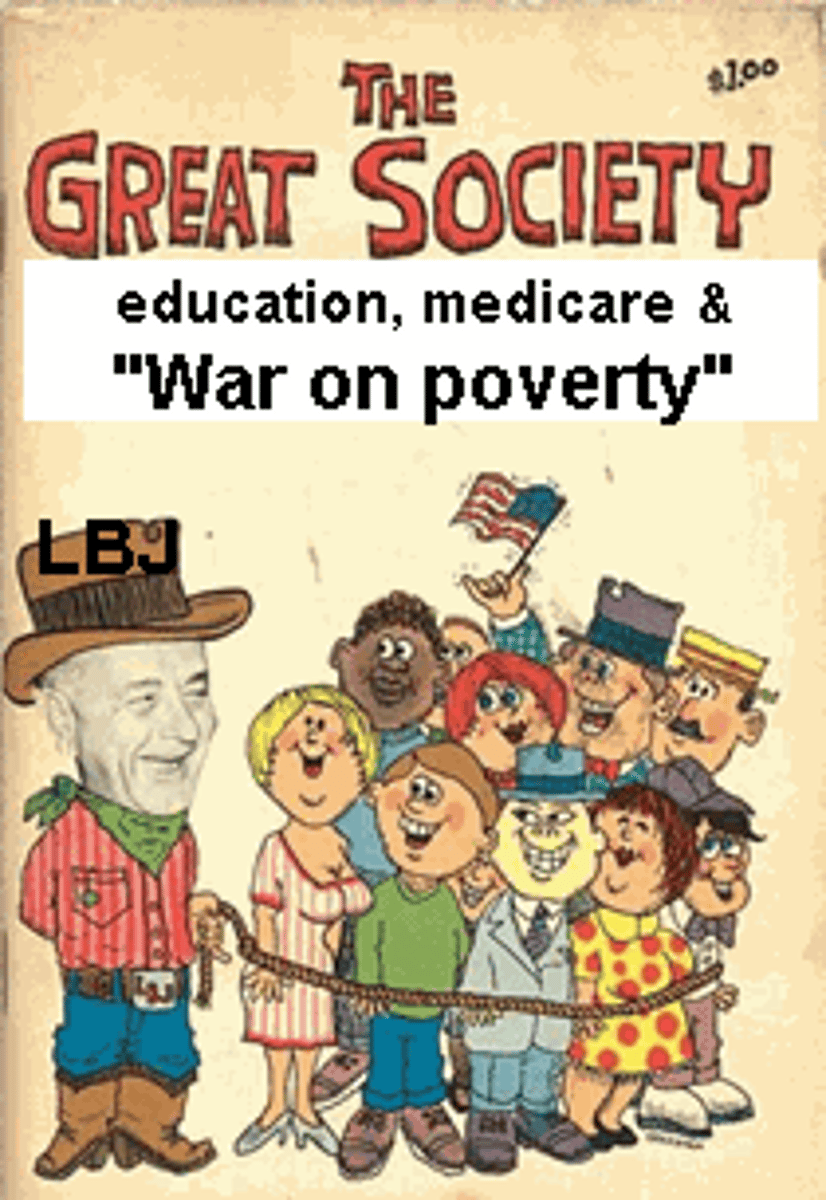
• Head Start
U.S. federal program that provides poverty-stricken children with a year or two of preschool along with nutritional and health services and that encourages parent involvement in program planning and children's learning.
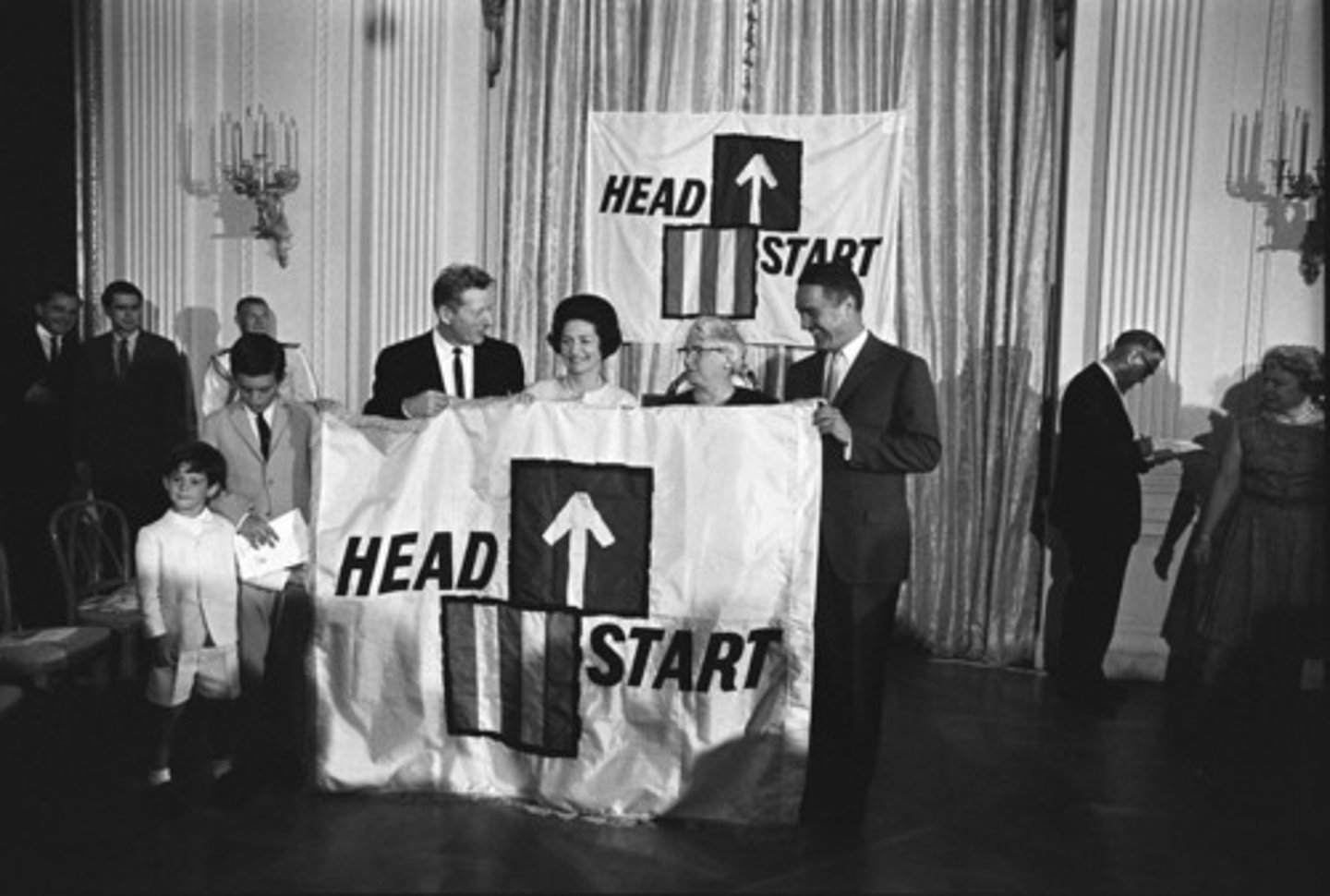
• Kerner Report
This stated that even though blacks had rights, the country was still unequal, because it was a white society. It tried to persuade legislation to recreate better homes, jobs, and job training.
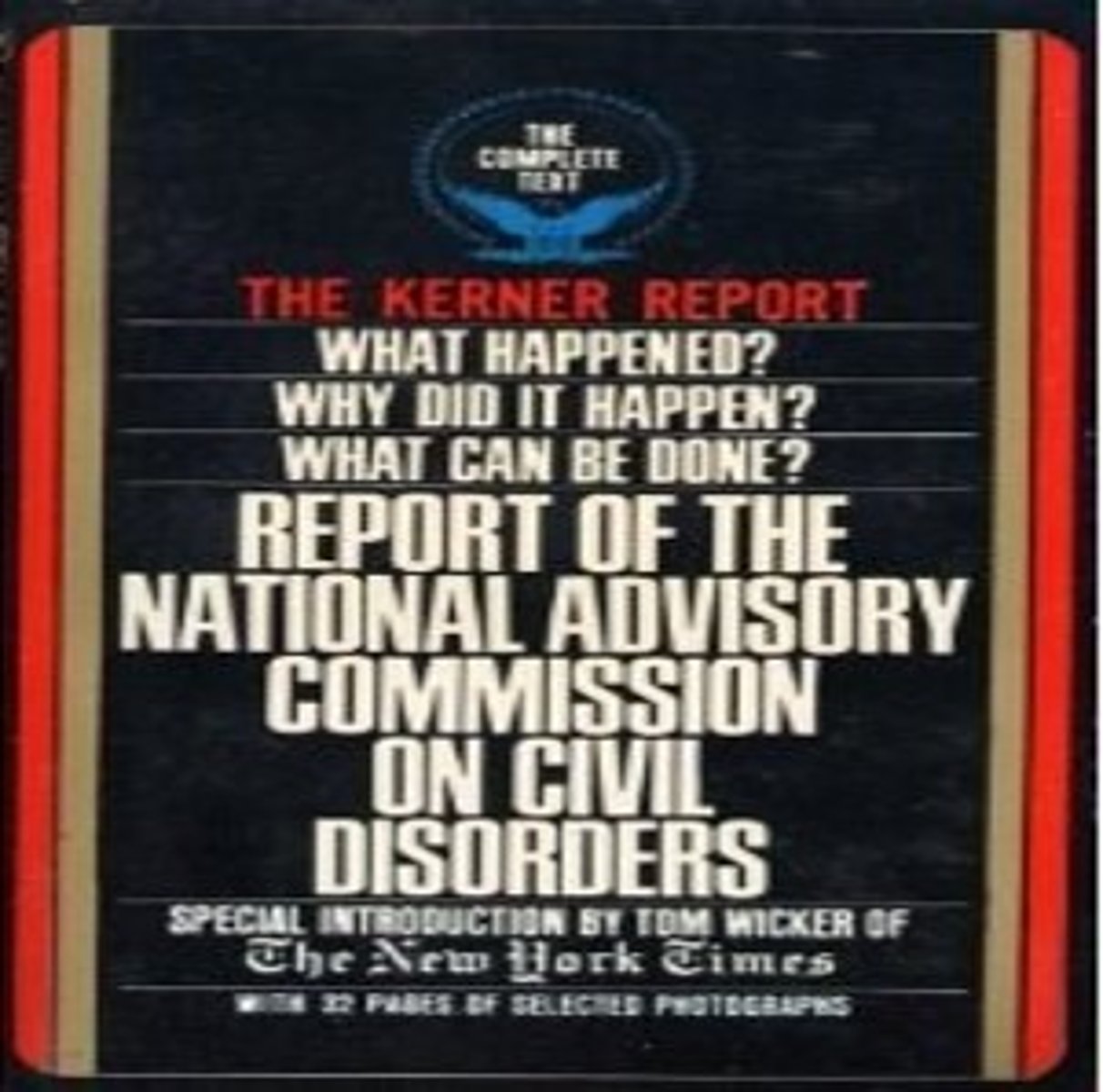
• Chicago Freedom Movement
Also known as the Chicago open housing movement, was led by Martin Luther King Jr., James Bevel and Al Raby. The movement included a large rally, marches, and demands to the City of Chicago.
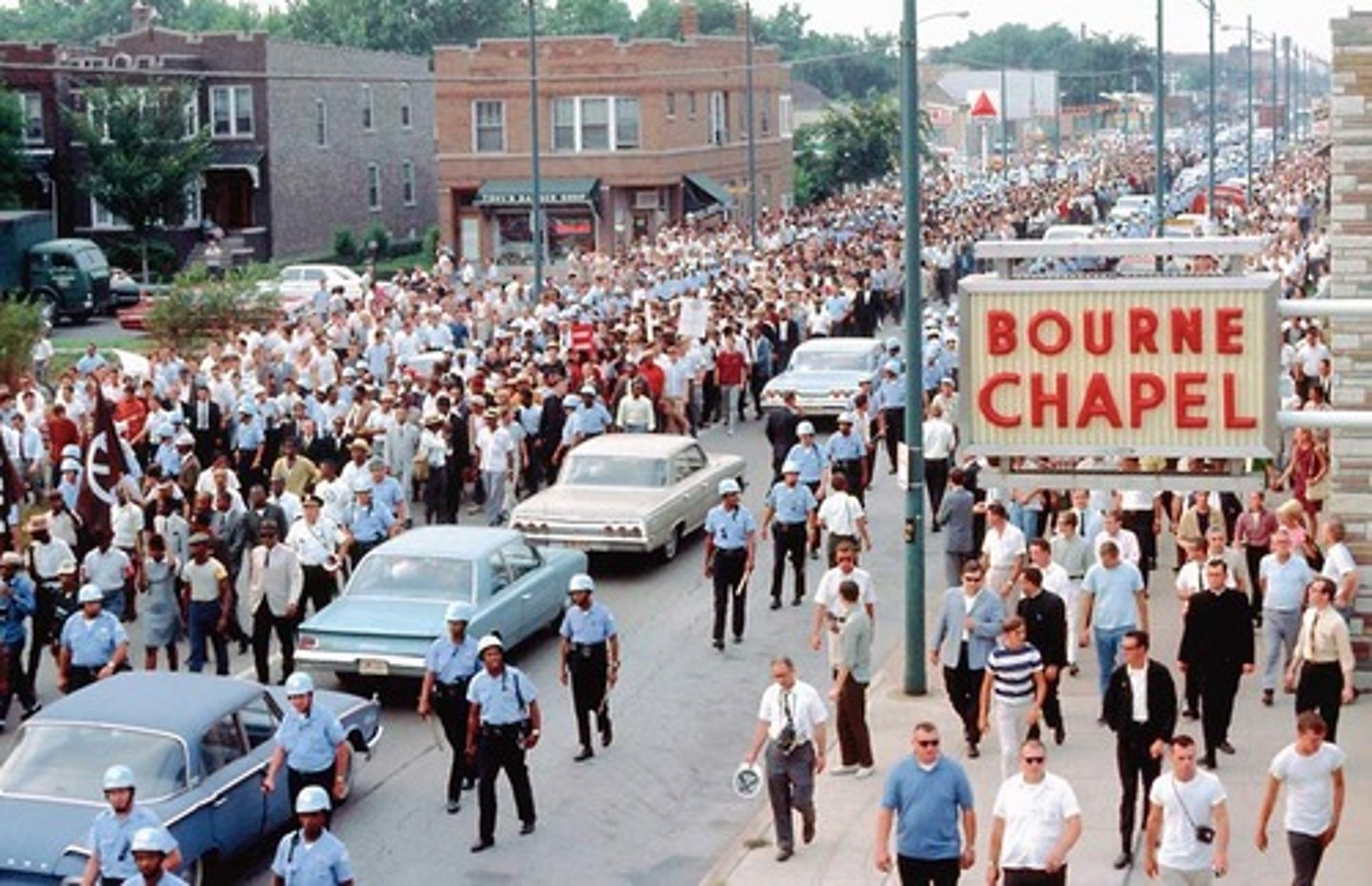
• Malcolm X
An African-American political leader of the twentieth century. A prominent Black Muslim, had many aggressive ways when protesting that were violent.
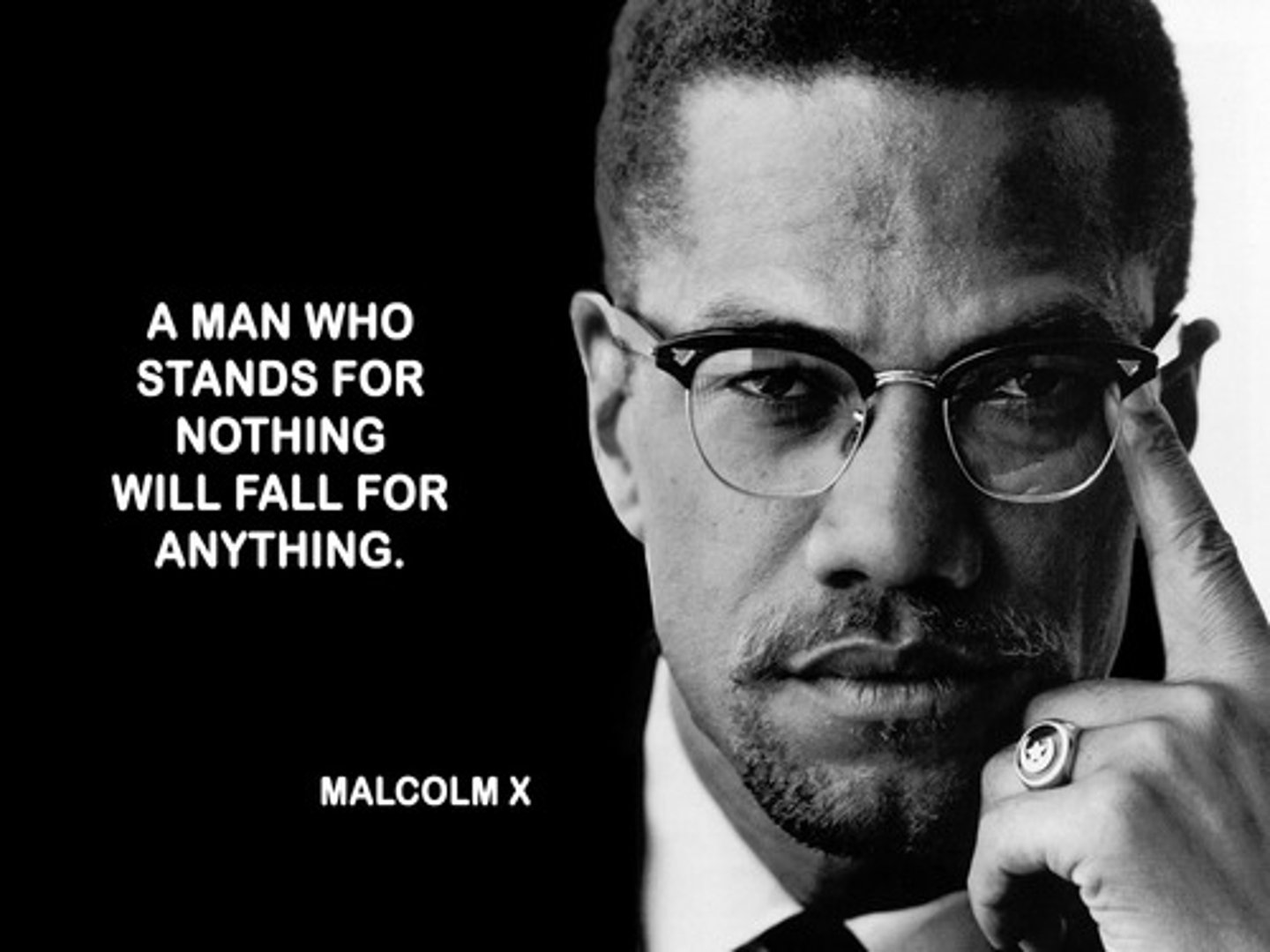
• "Black Power"
Racial slogan that signaled a growing challenge to MLK's non-violent civil rights movement by militant younger blacks
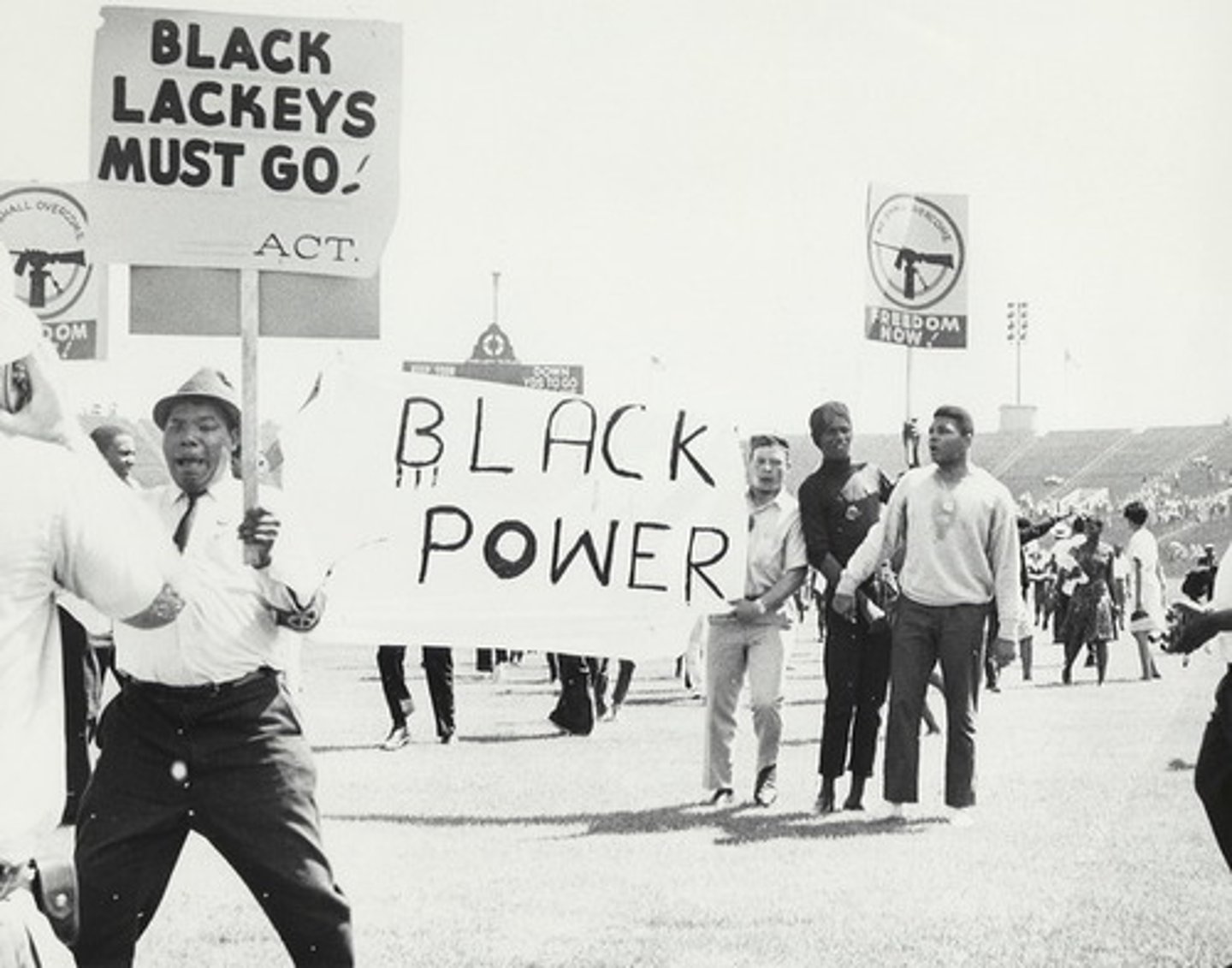
• New Left
A youth-dominated political movement of the 1960s, embodied in such organization as Students for a Democratic Society and the Free Speech Movement.
• Gulf of Tonkin resolution
1964 Congressional resolution authorizing President Johnson to take military action in Vietnam
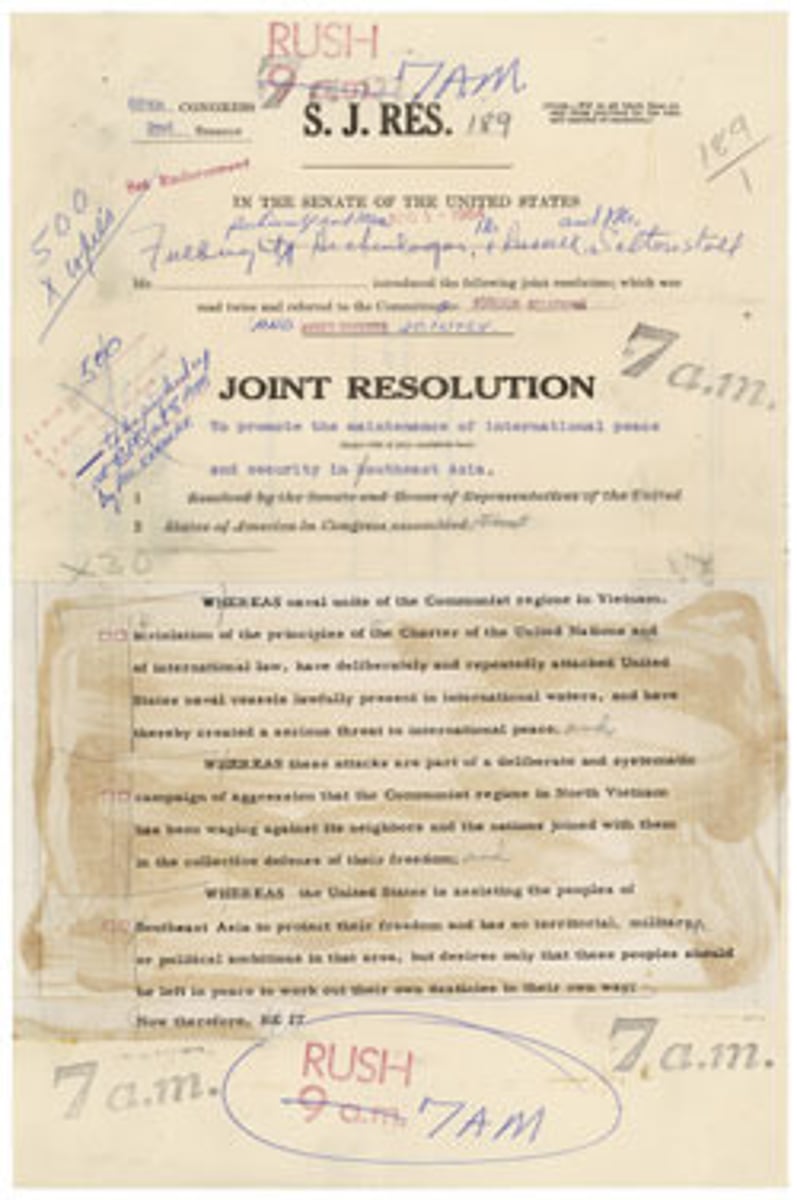
• Counterculture
Essentially hippies, a culture with lifestyles and values opposed to those of the established culture; who accepted drugs and sexuality and lived unconnected to the past
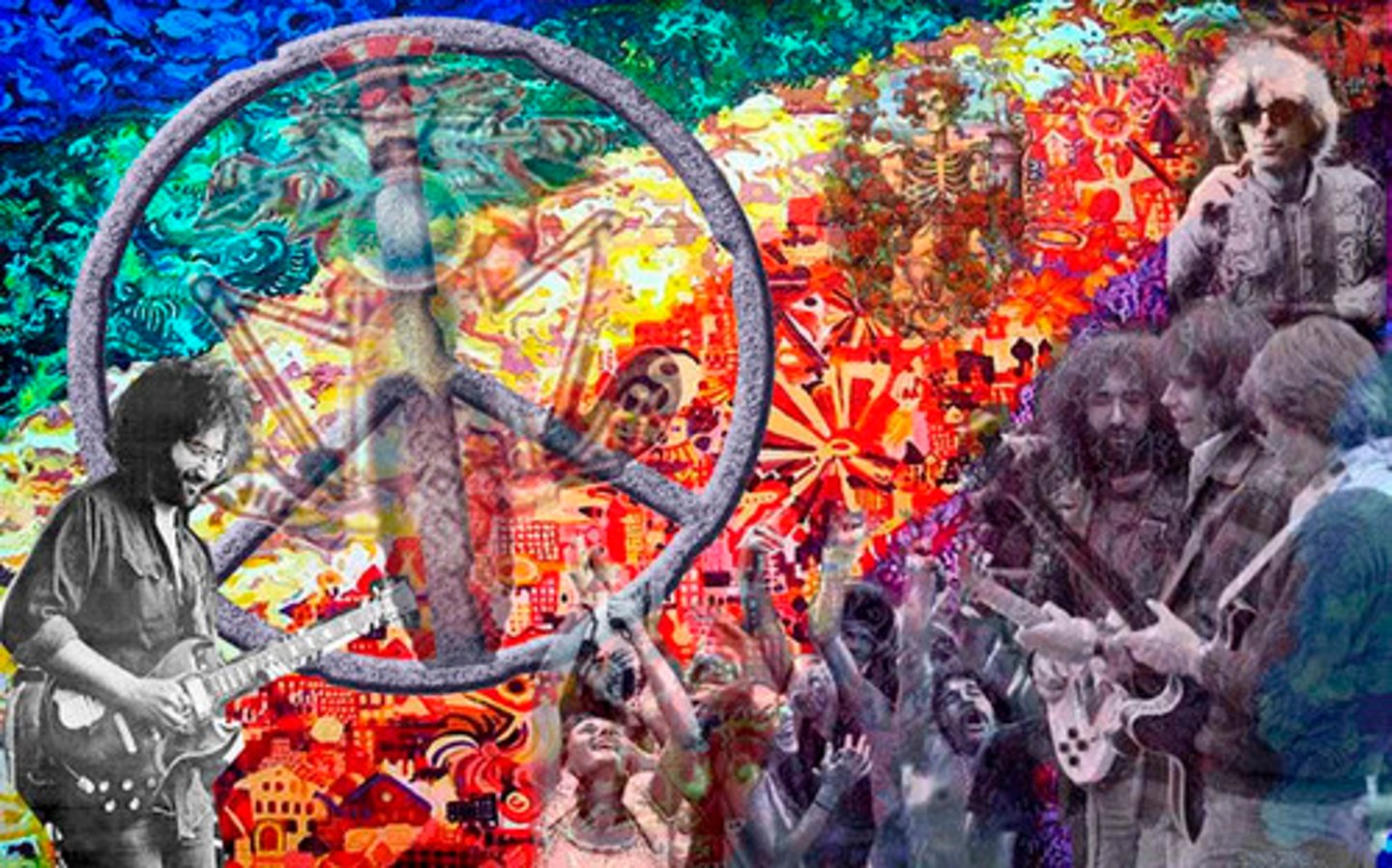
• Betty Freidan
wrote "the Feminine Mystique" and created NOW (National Organization of Women) worked for equal pay and opportunities for women in society
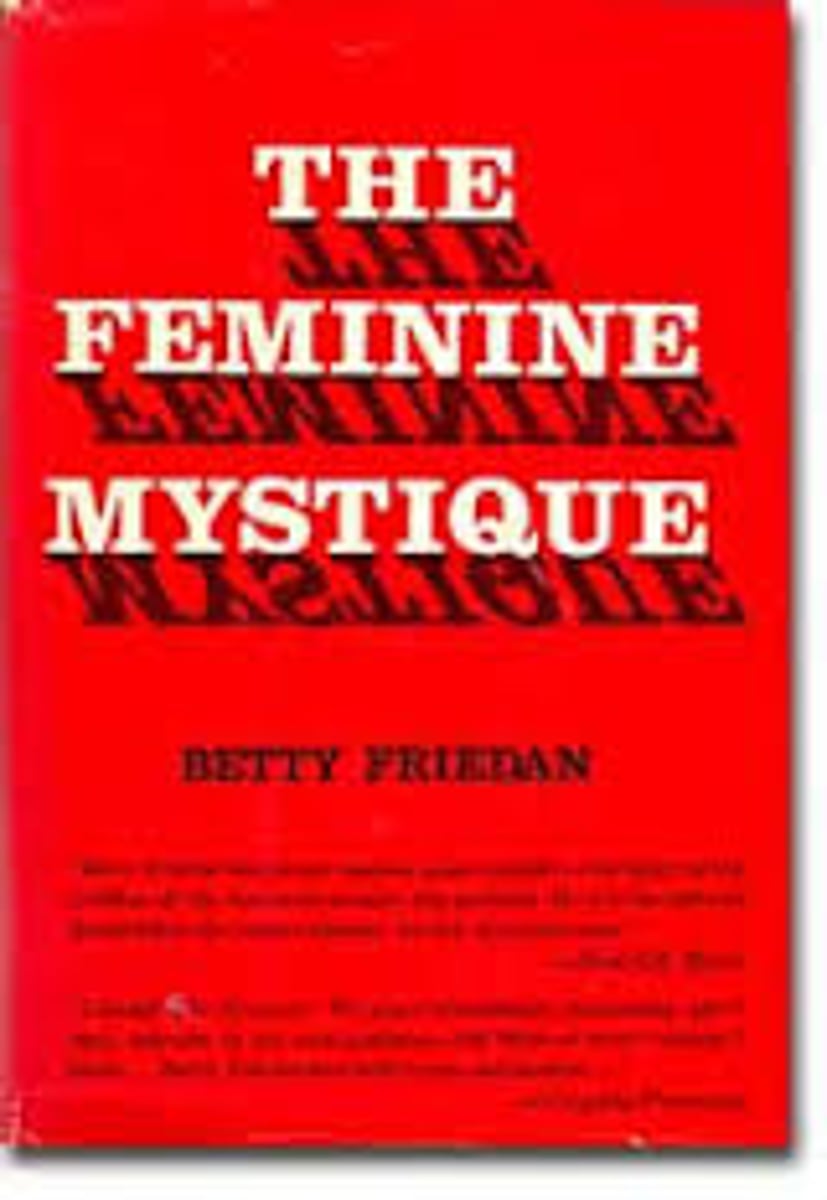
• Equal Pay Act
United States labor law amending the Fair Labor Standards Act, aimed at abolishing wage disparity based on sex
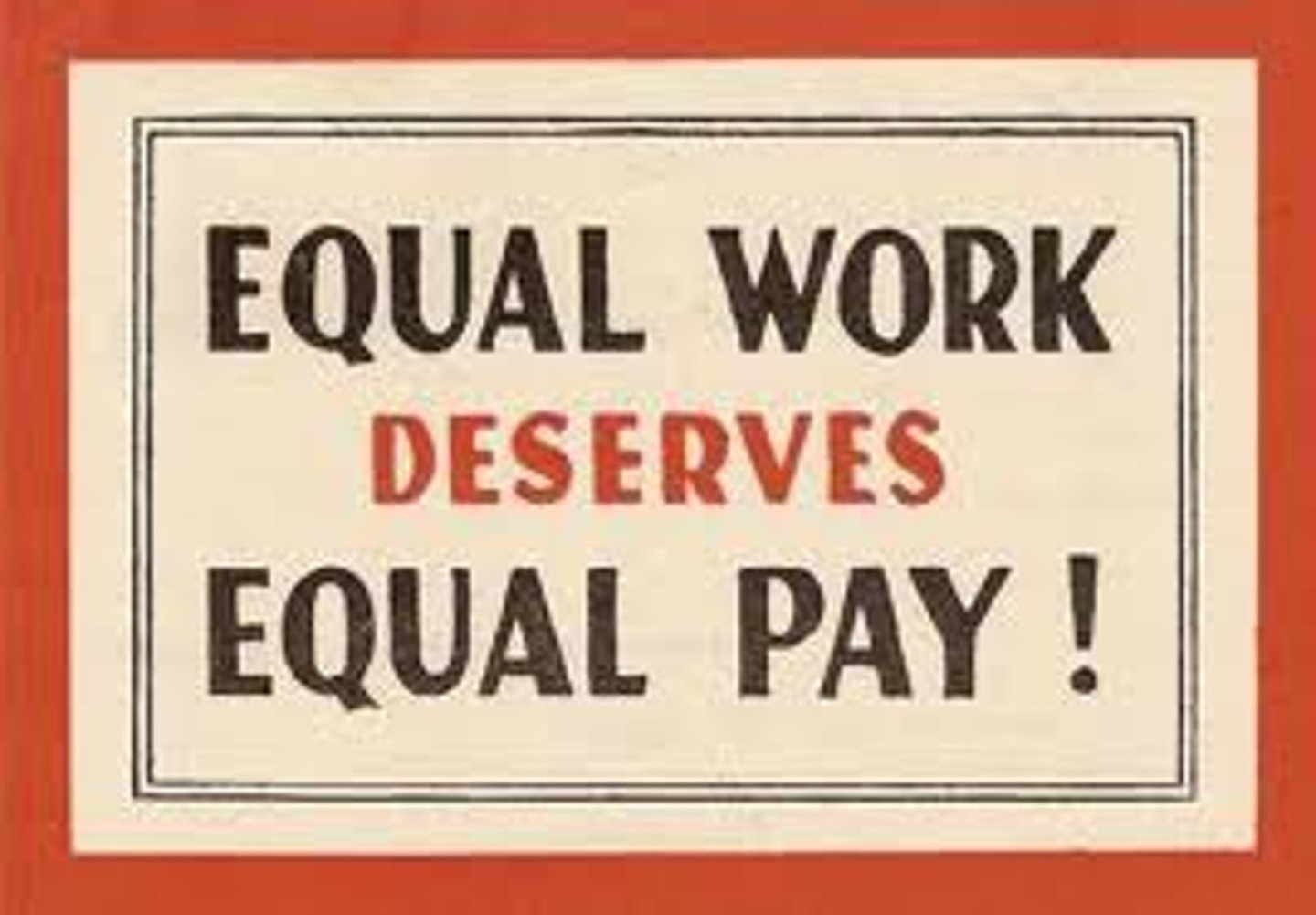
• NOW
National Organization for Women, A major feminist organization, founded in the middle 1960s, when the Equal Employment Opportunity Commission failed to enforce a clause in the Civil Rights Act of 1964 prohibiting discrimination on the basis of gender. One of its founders was Betty Friedan.
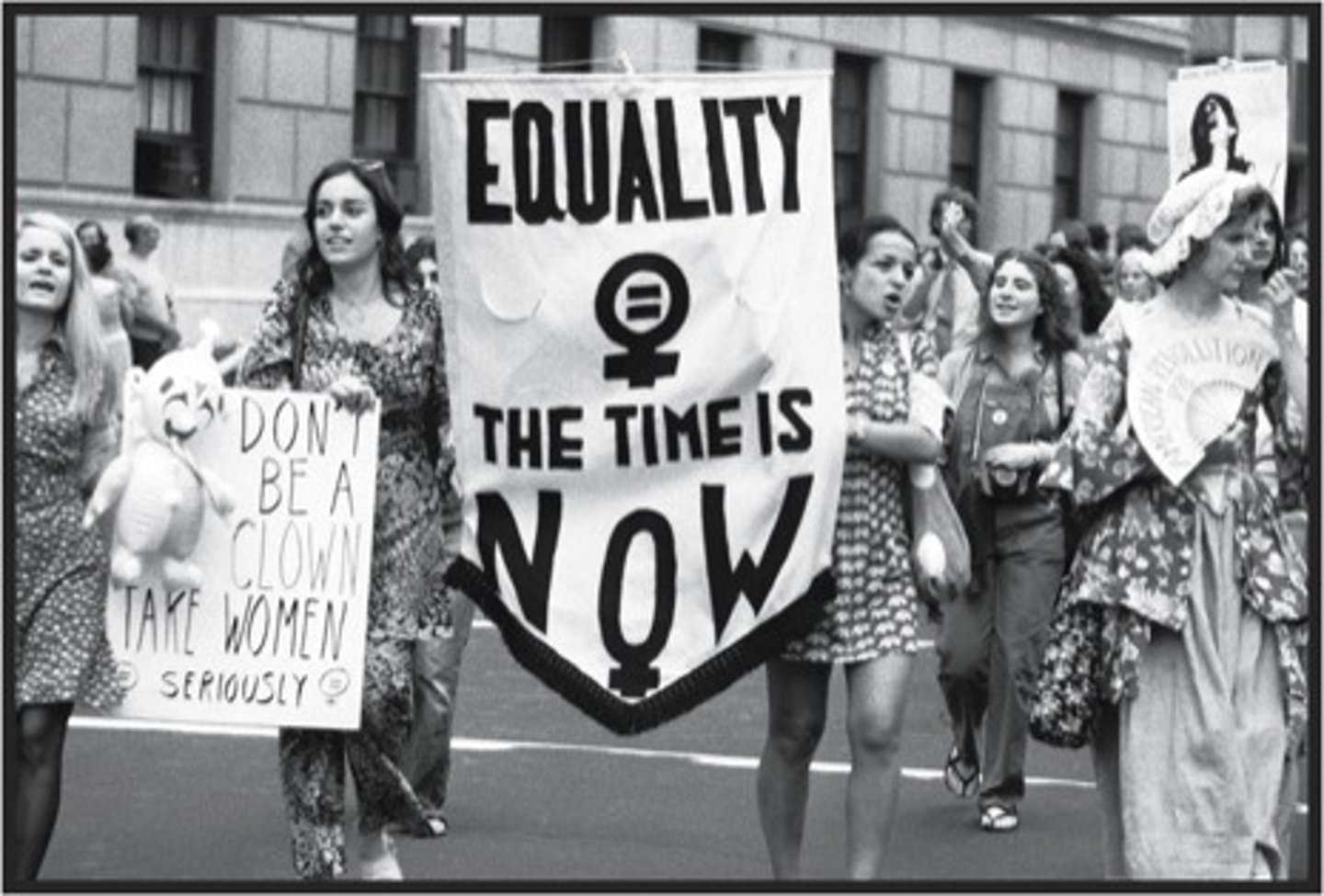
• Cesar Chavez
Organized Union Farm Workers (UFW); help migratory farm workers gain better pay & working conditions
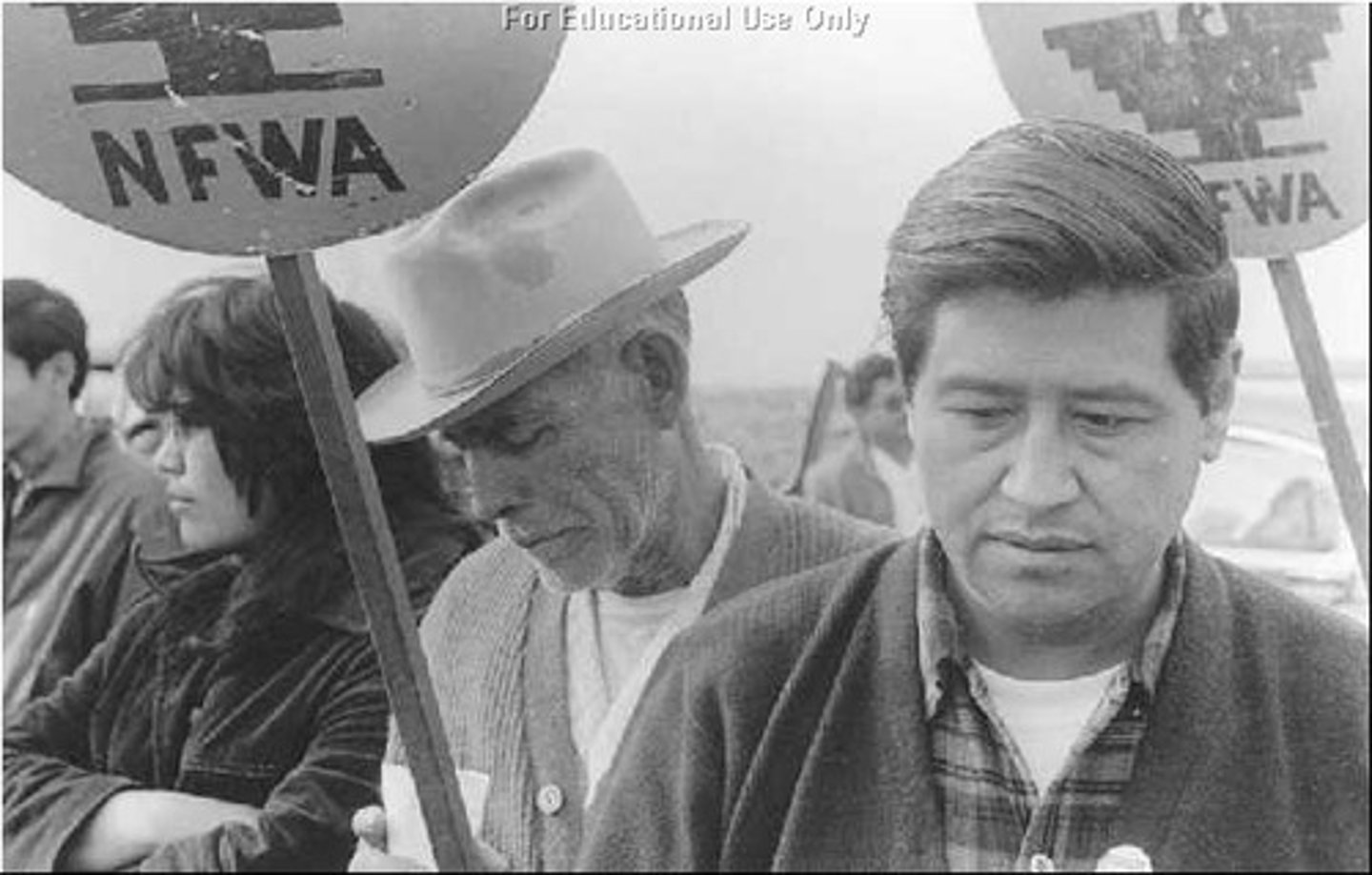
• American Indian Movement
Or AIM was an American Indian advocacy group in the United States,. AIM's paramount objective is to create "real economic independence for the Indians."
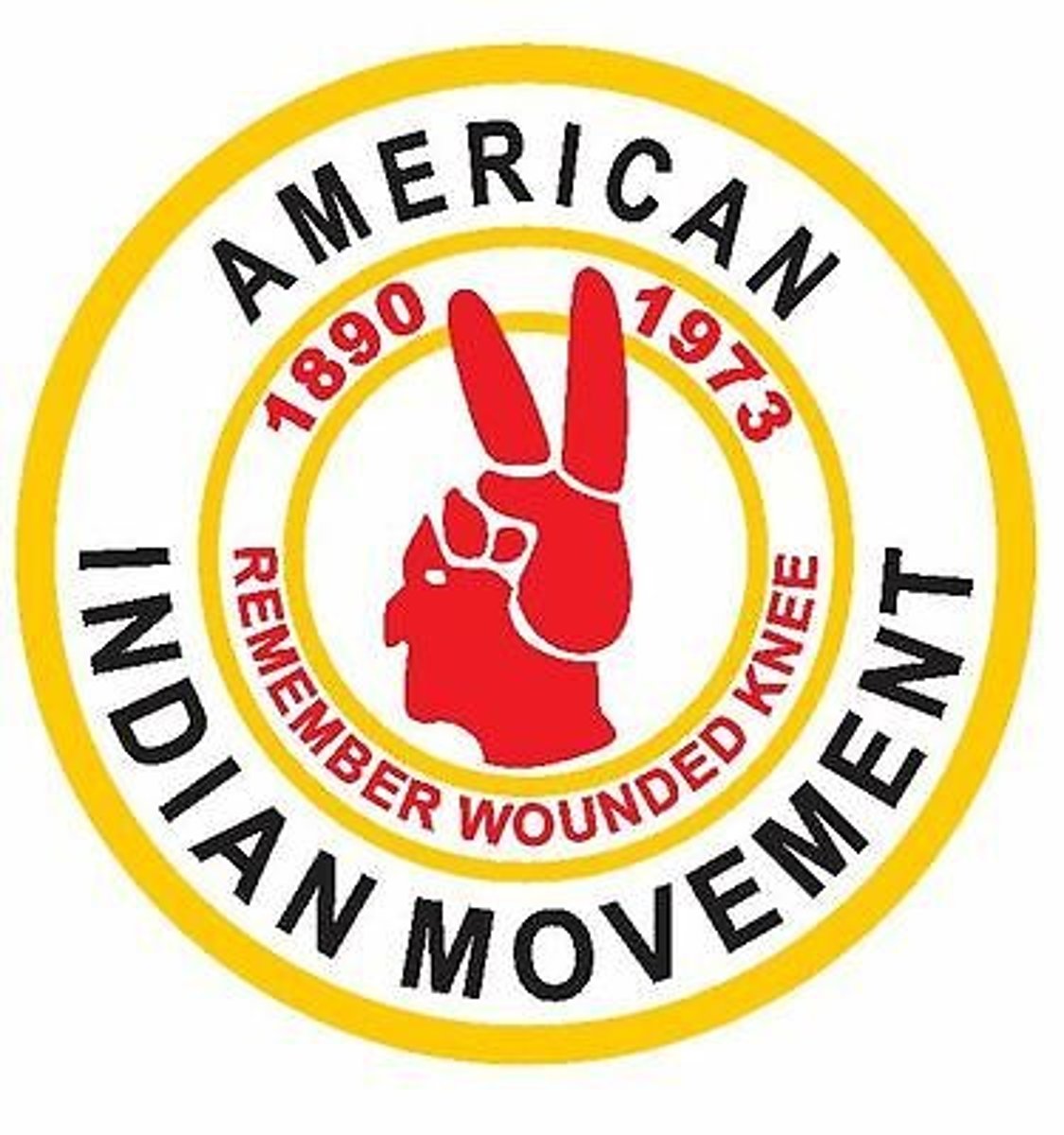
• Silent Spring
an environmental science book by Rachel Carson. The book was published in September 1962; it documented the detrimental effects on the environment of the indiscriminate use of pesticides.
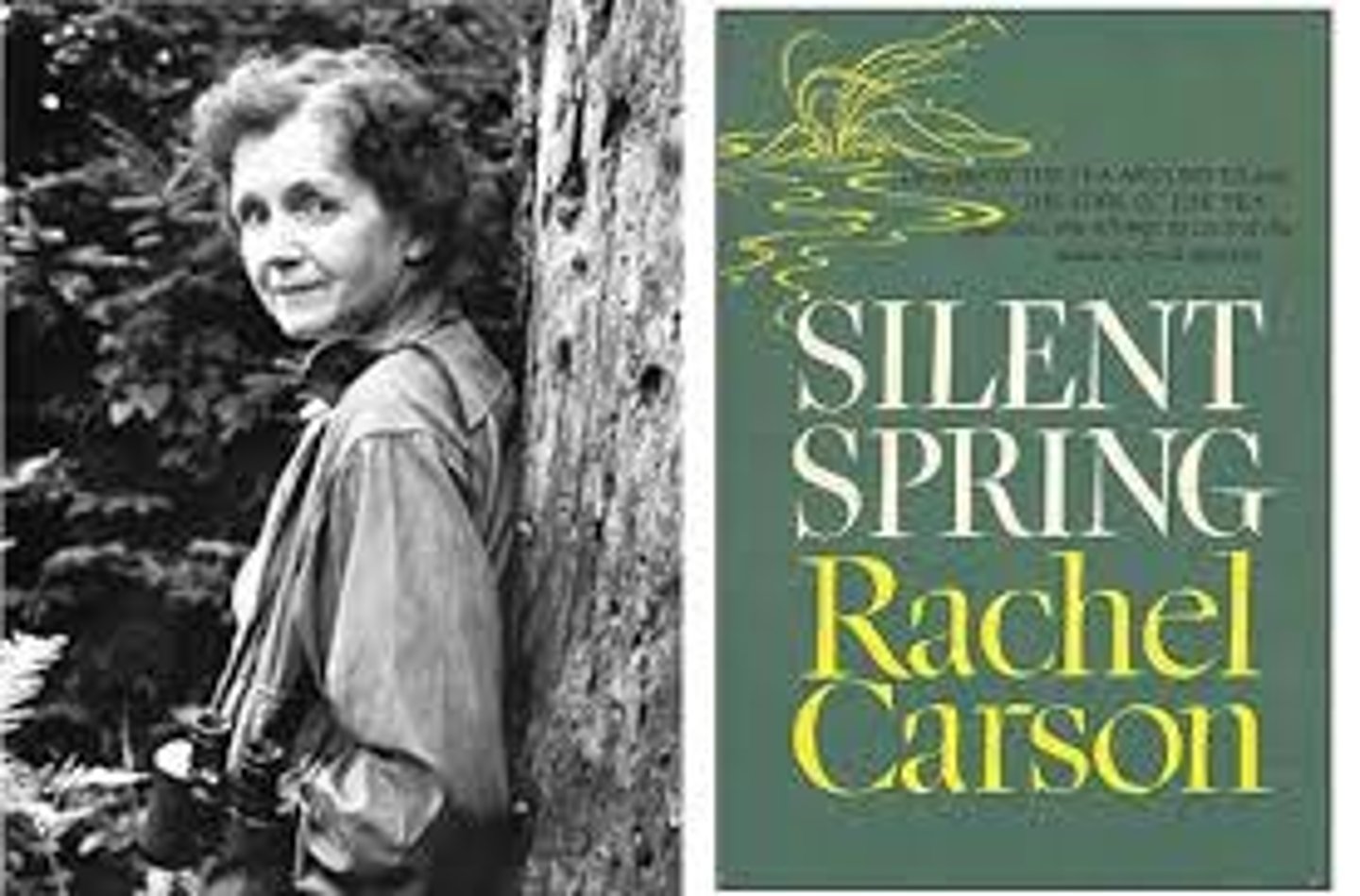
• Miranda v. Arizona
1966 Supreme Court decision that sets guidelines for police questioning of accused persons to protect them against self-incrimination and to protect their right to counsel.
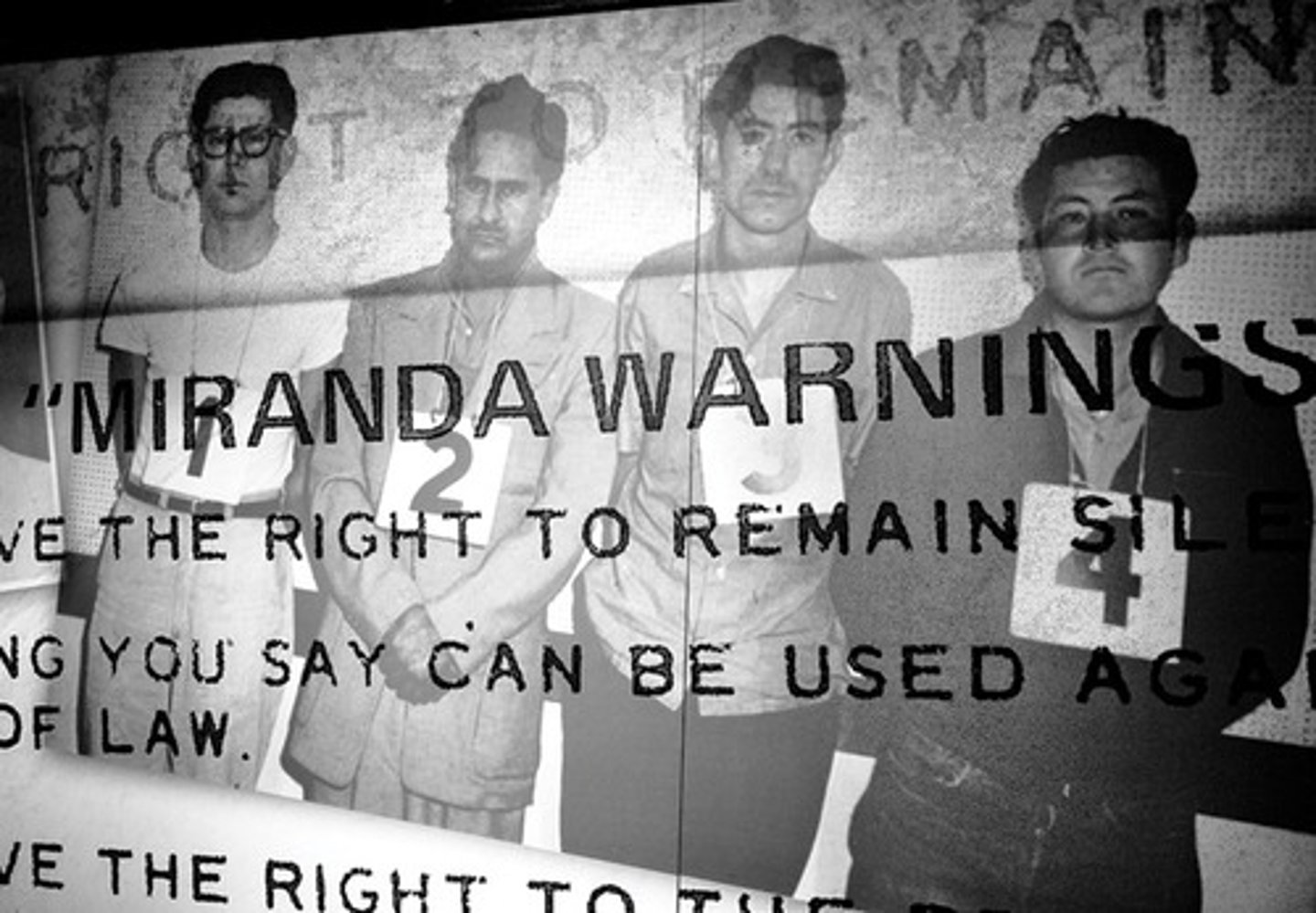
• Baker v. Carr
A landmark United States Supreme Court case that decided that redistricting (attempts to change the way voting districts are delineated) issues present justiciable questions, thus enabling federal courts to intervene in and to decide redistricting cases.
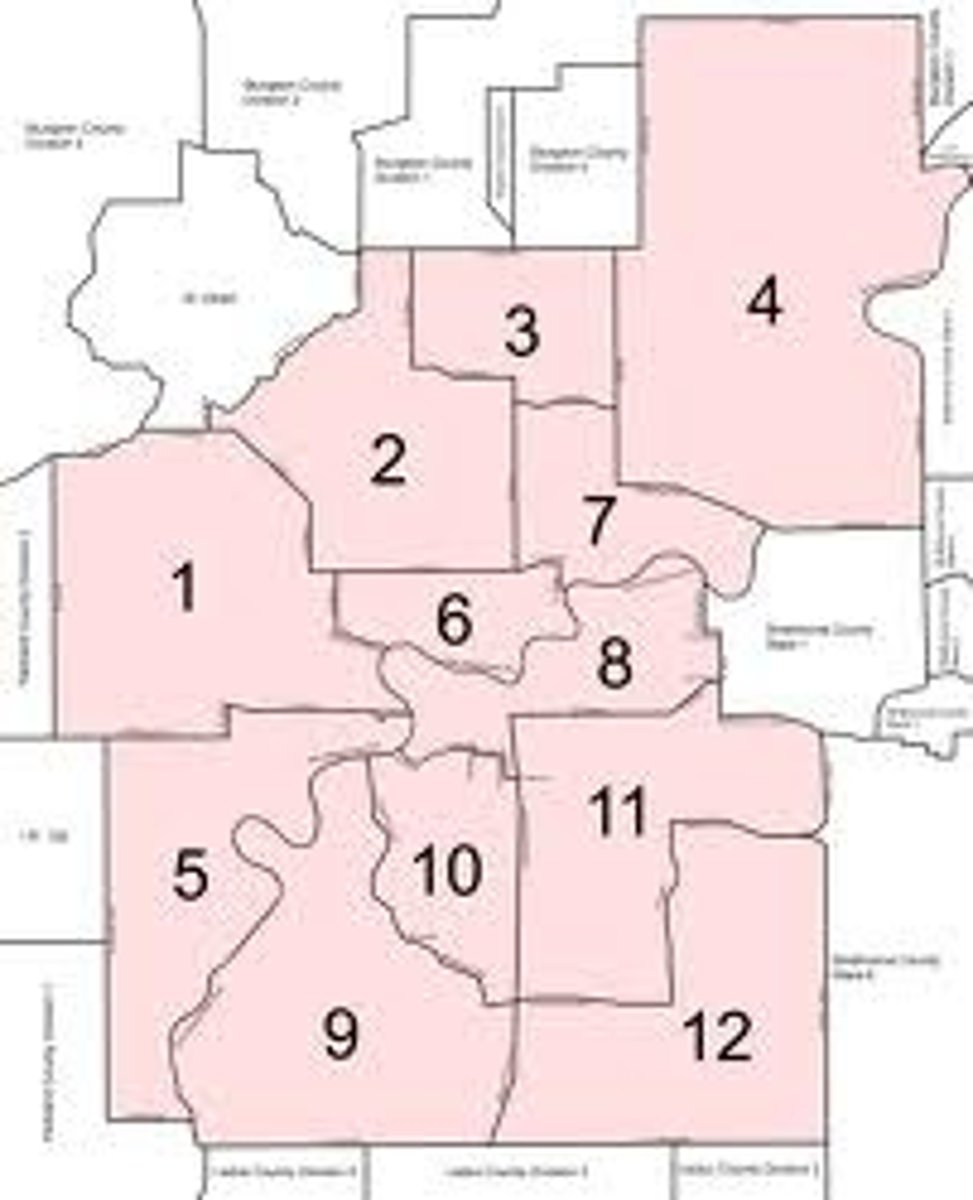
• Griswold v. Connecticut
A landmark case in the United States in which the Supreme Court of the United States ruled that the Constitution, through the Bill of Rights, implies a fundamental right to privacy.
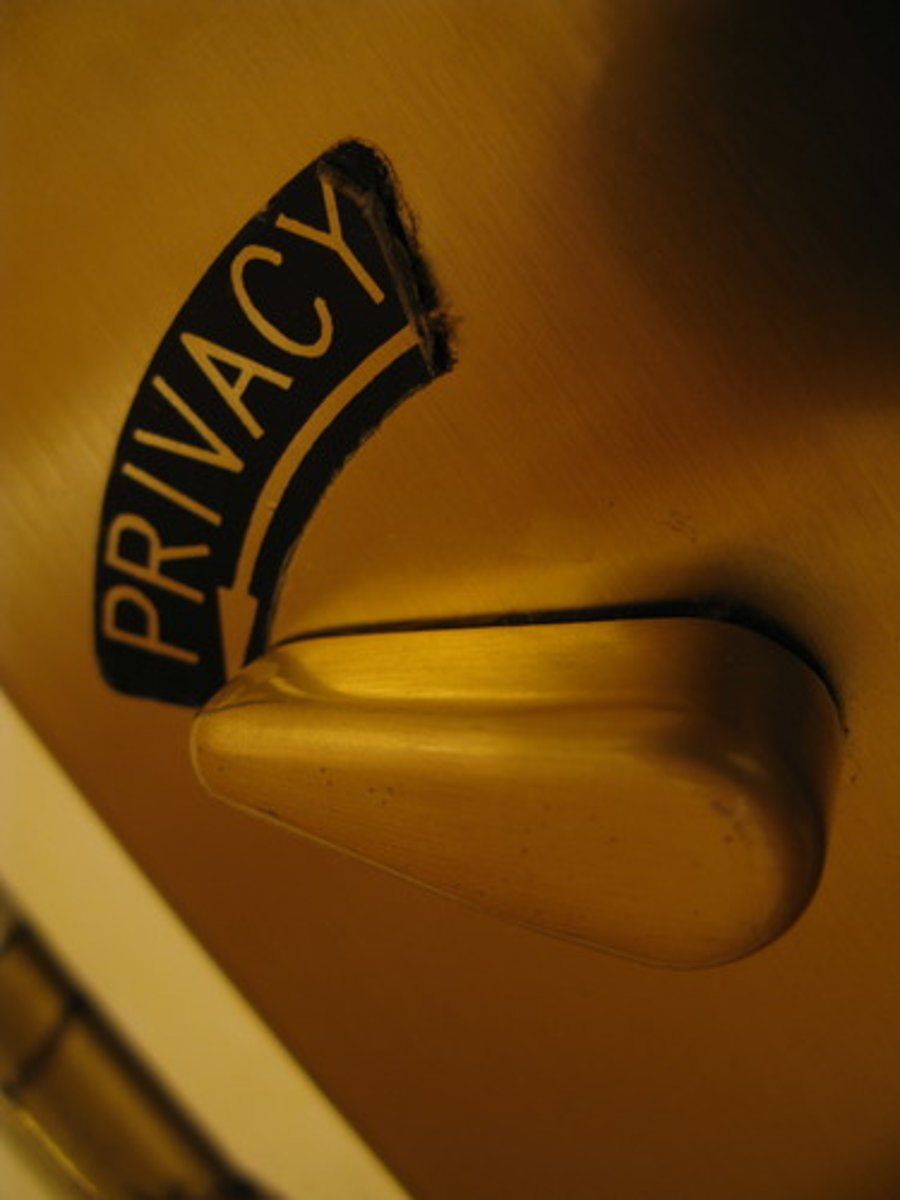
Loving v. Virginia (1967)
Struck down state's law banning interracial marriage as violation of the 14th Amendment equal protection clause (Warren Court)
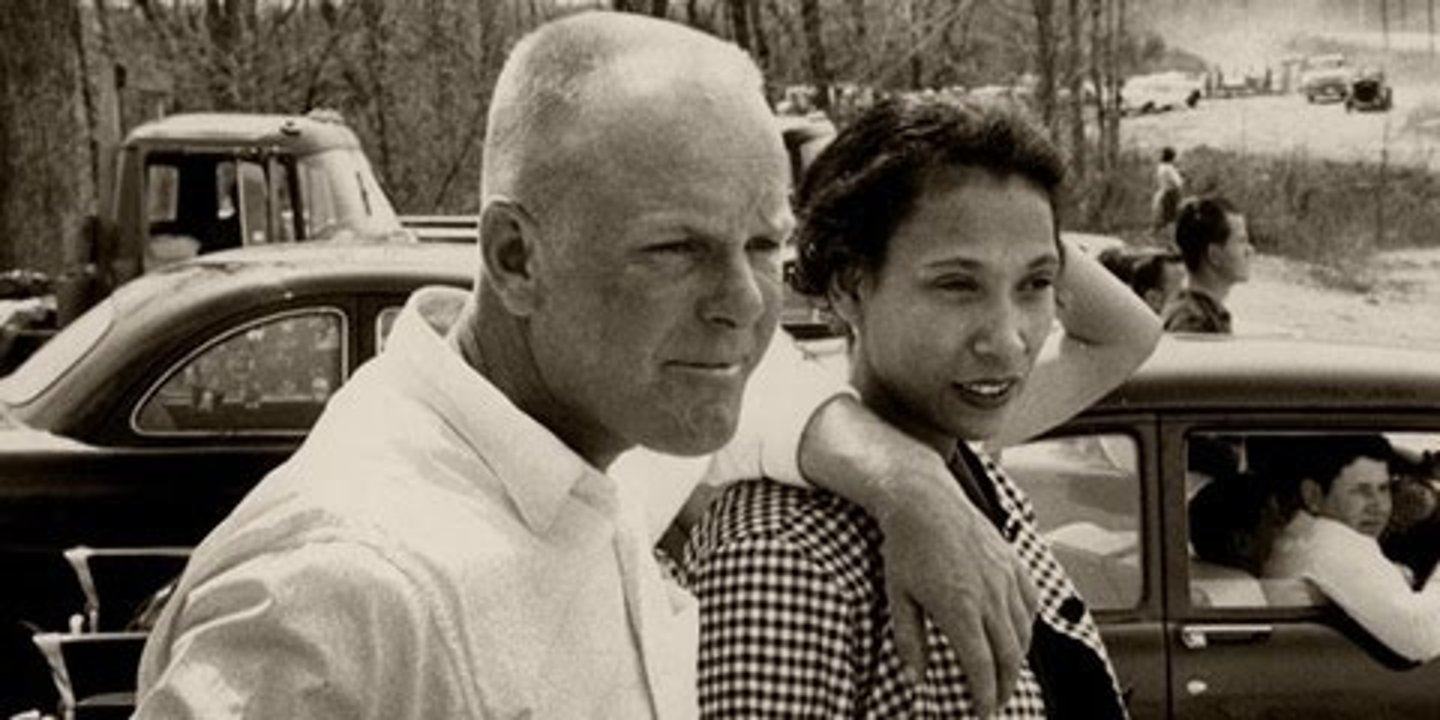
Roe v. Wade (1973)
Abortion rights fall within the privacy implied in the 14th amendment
